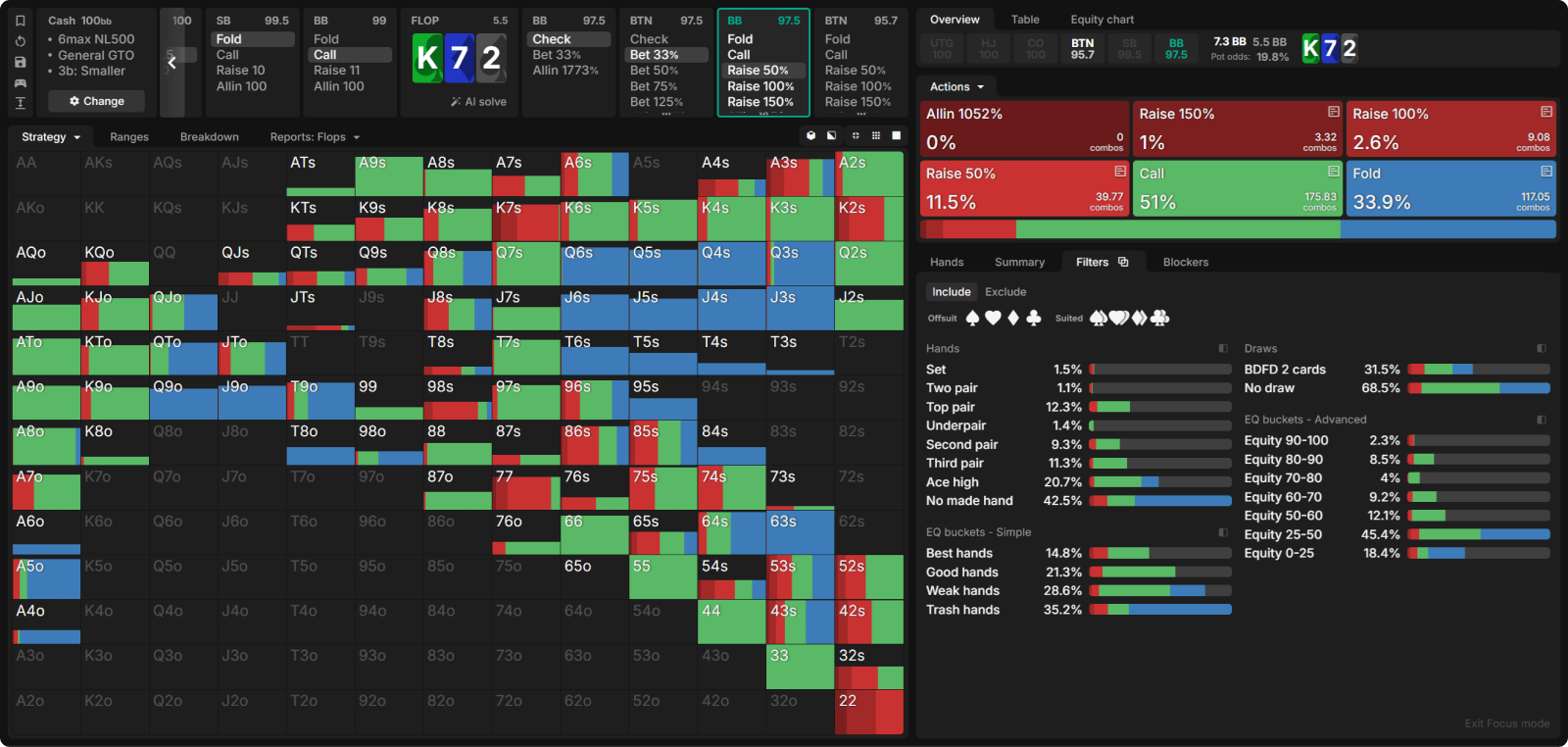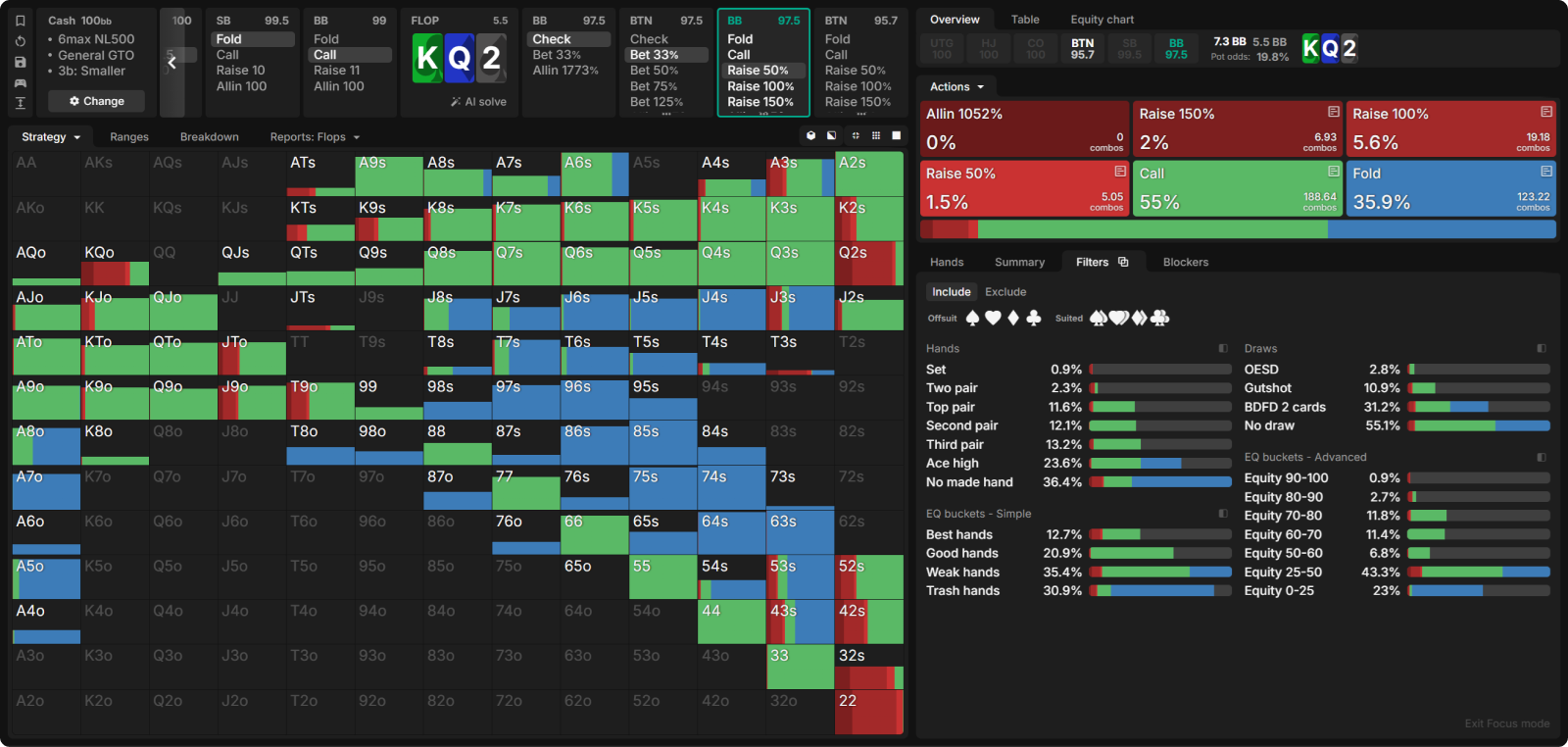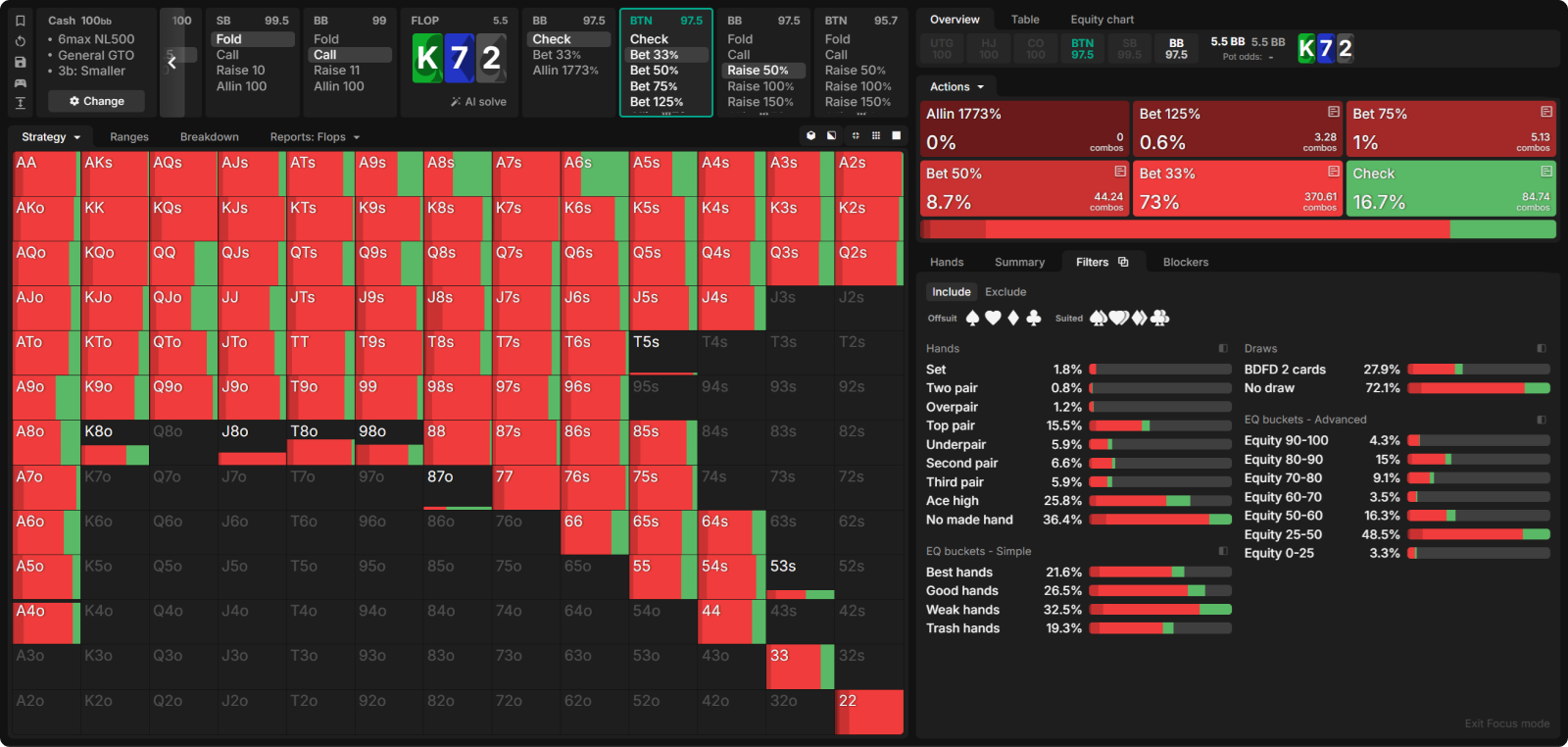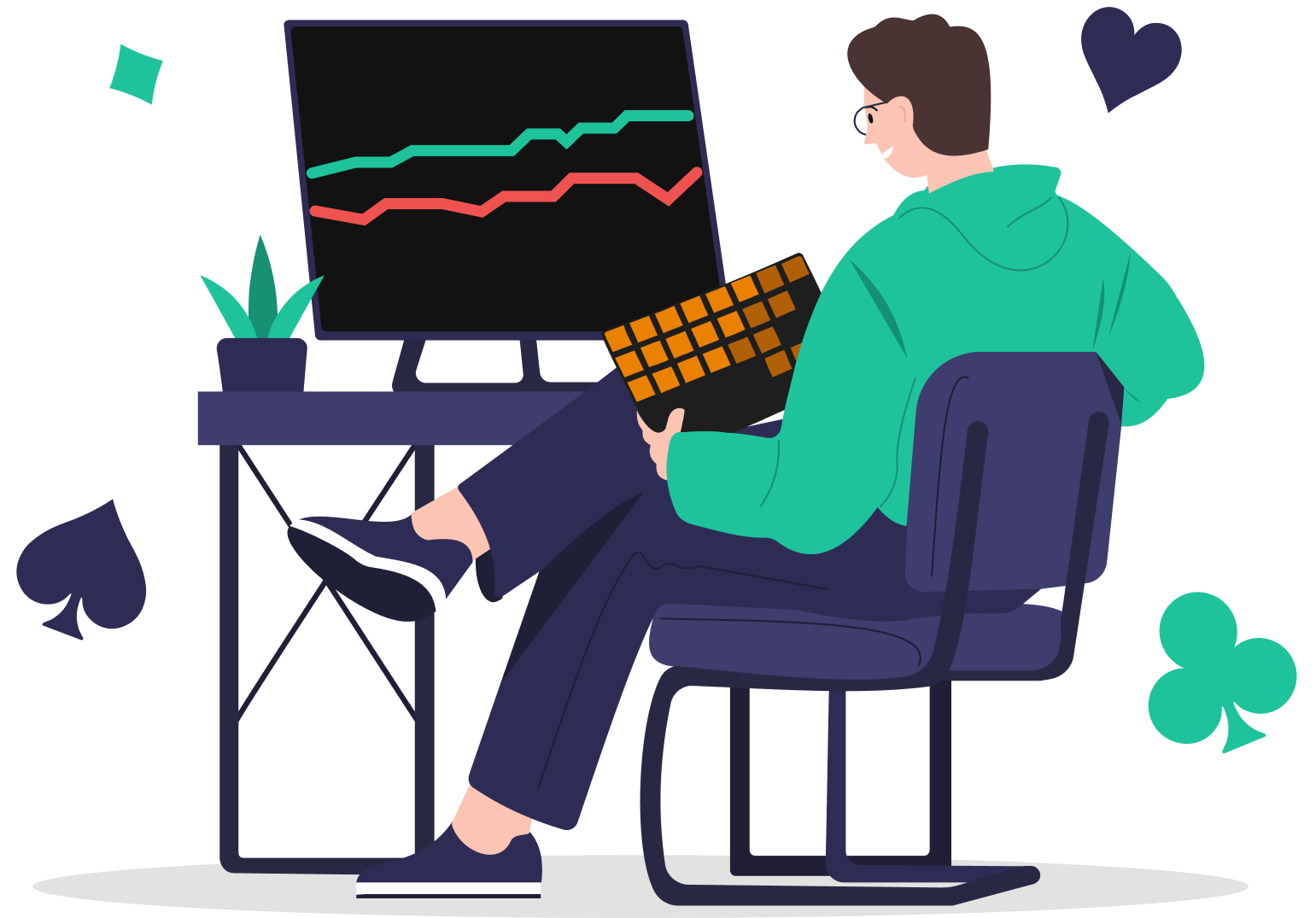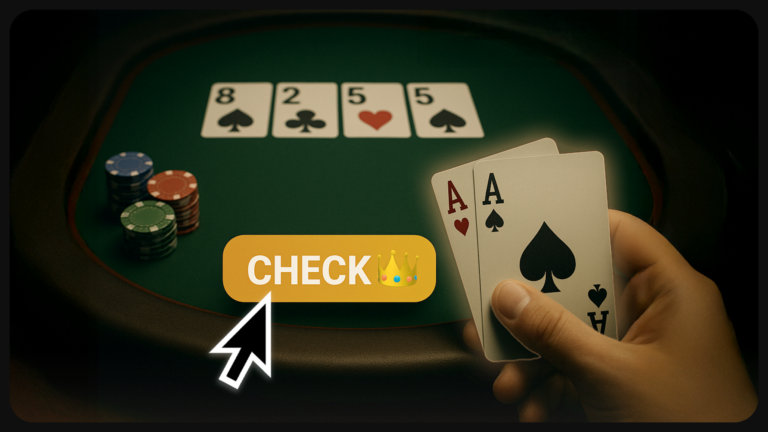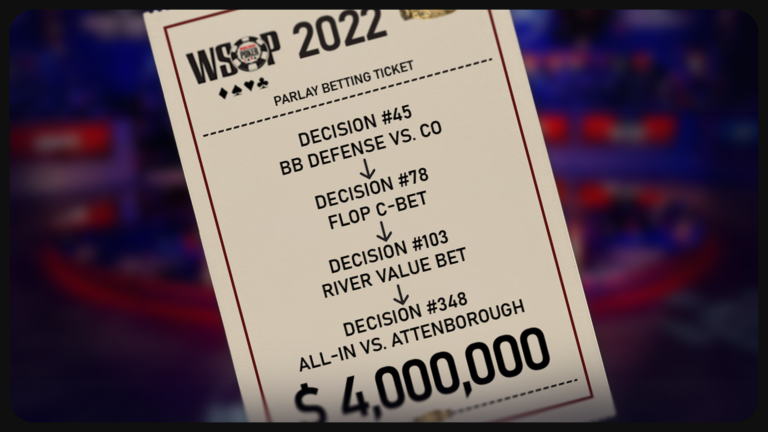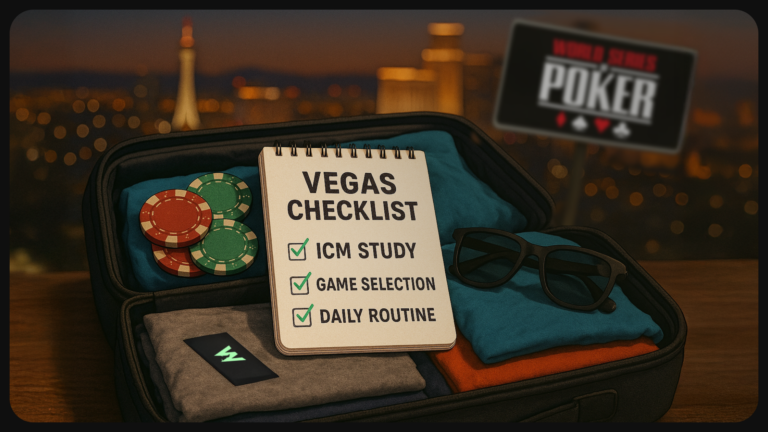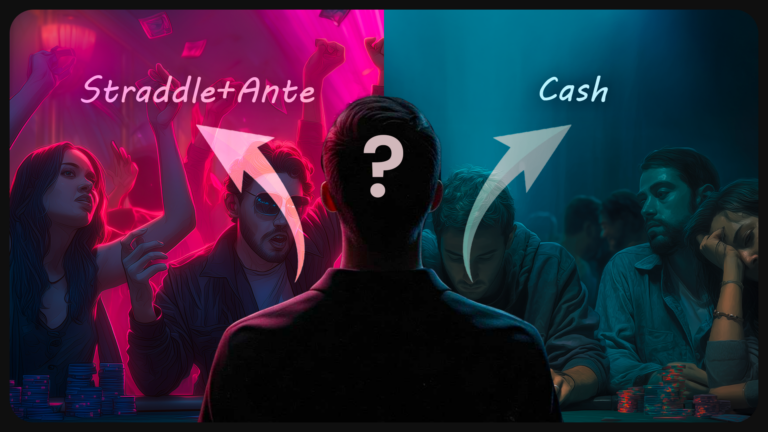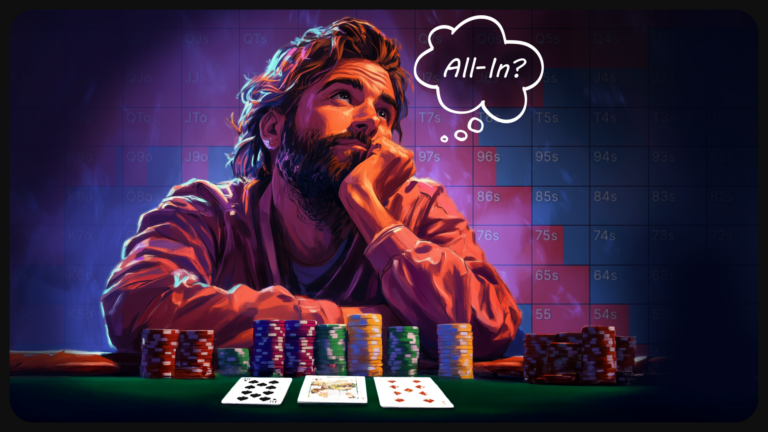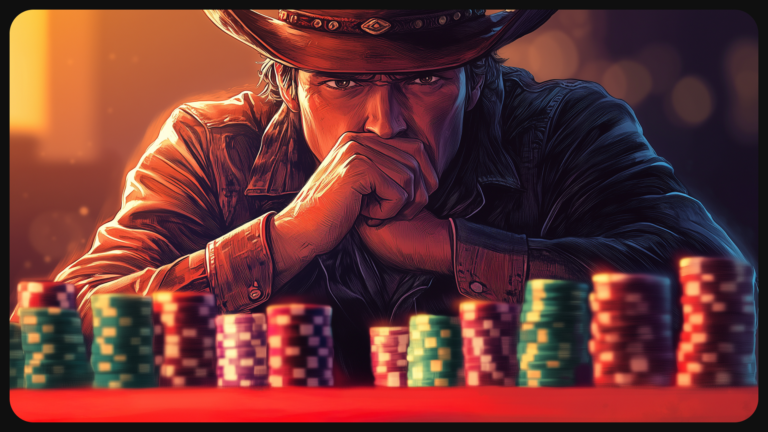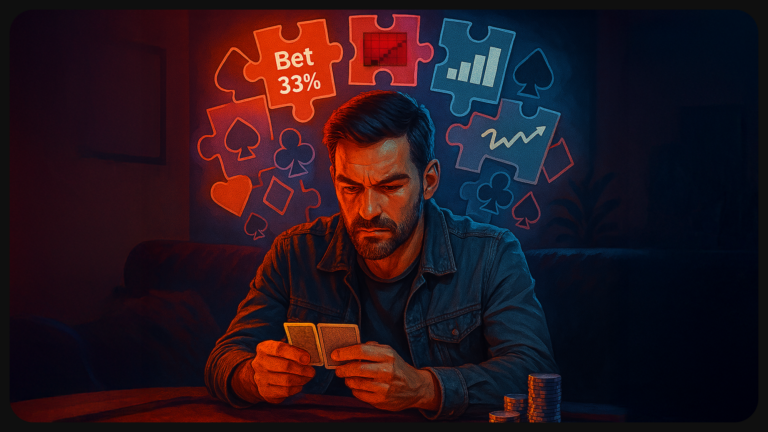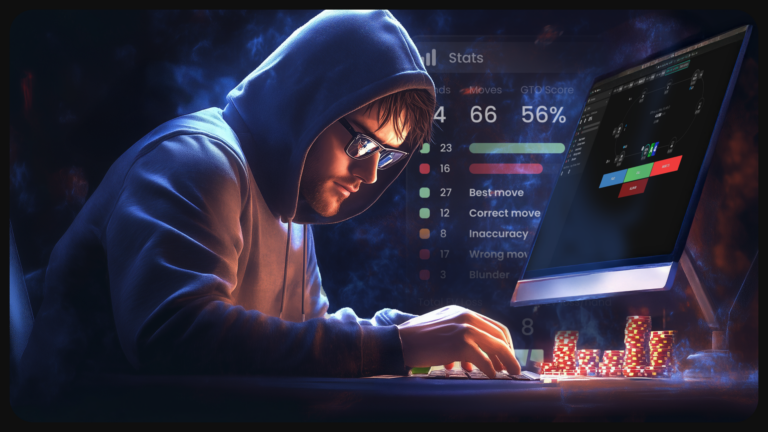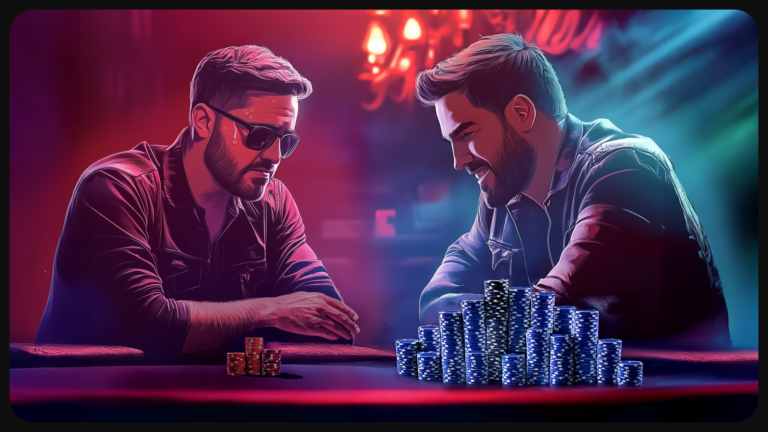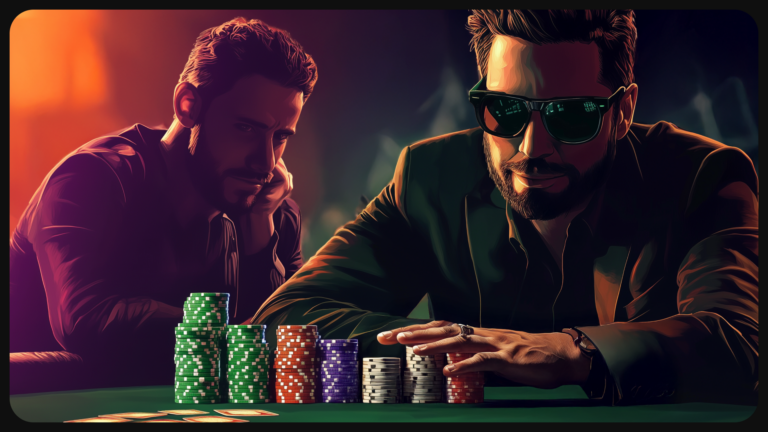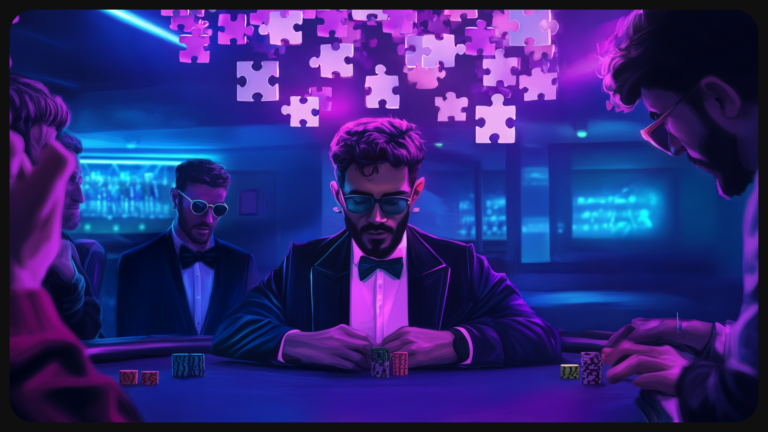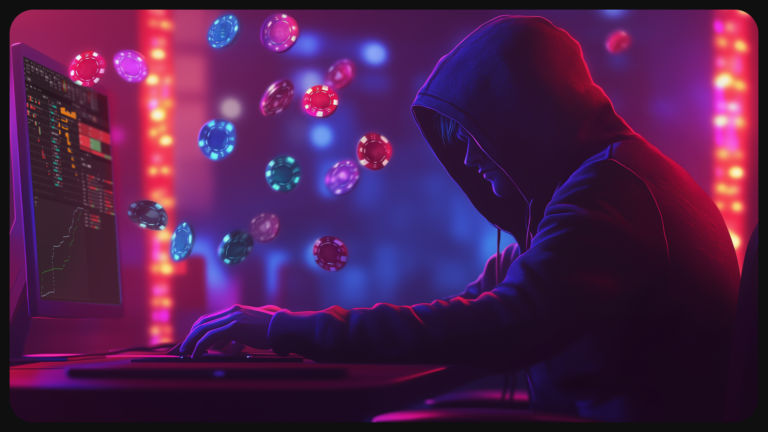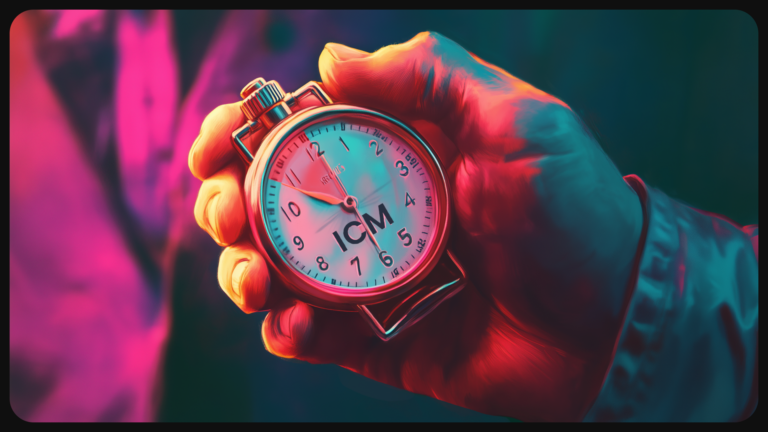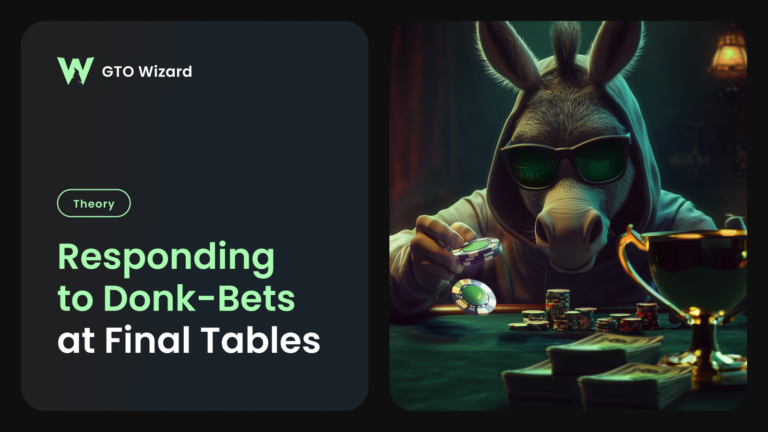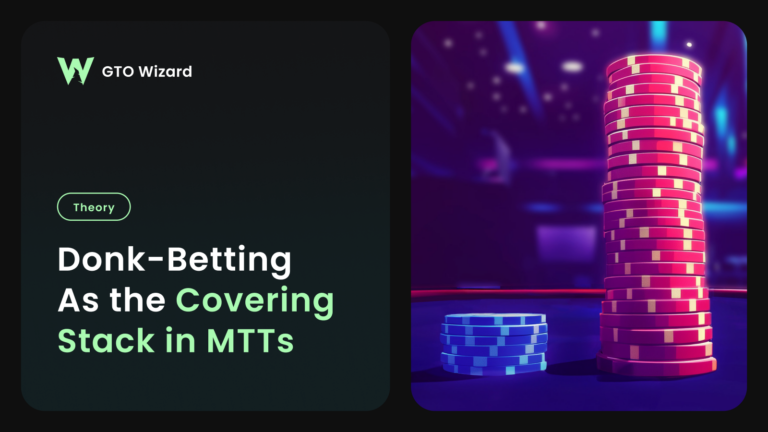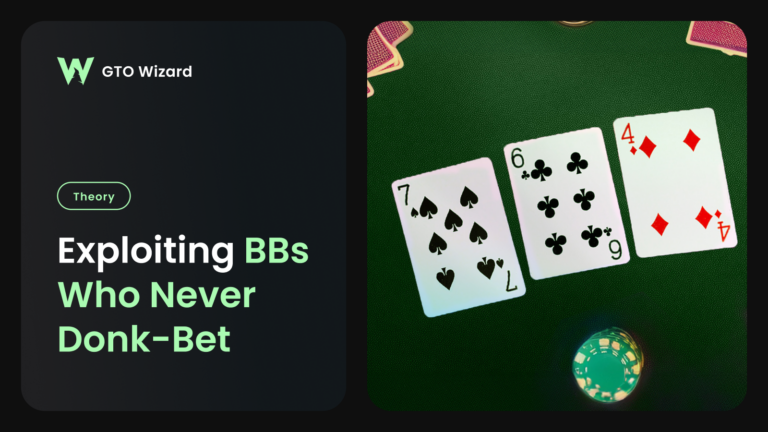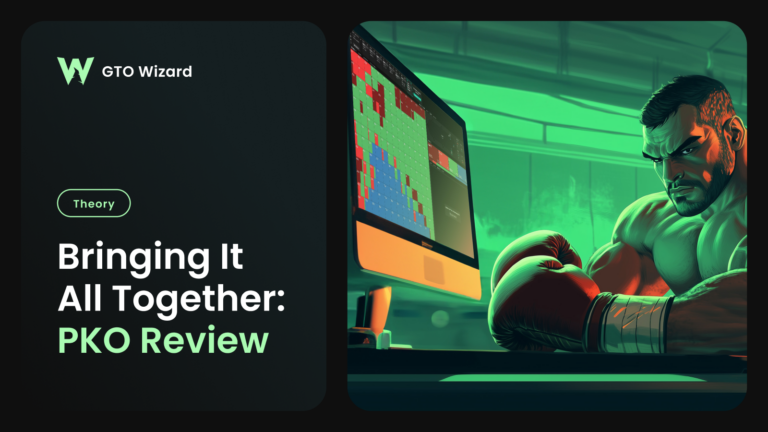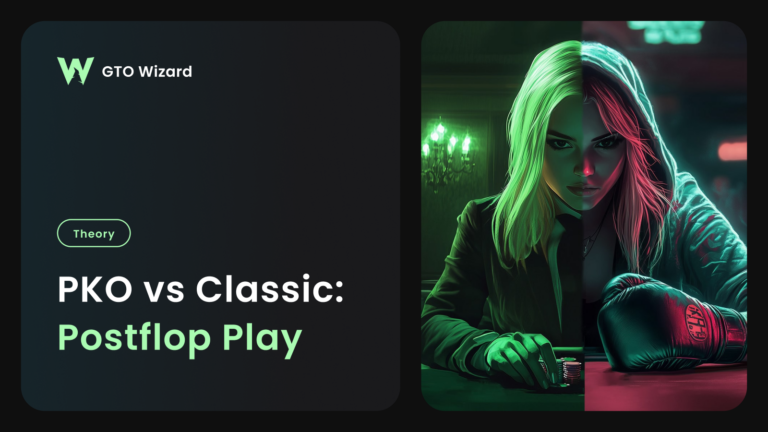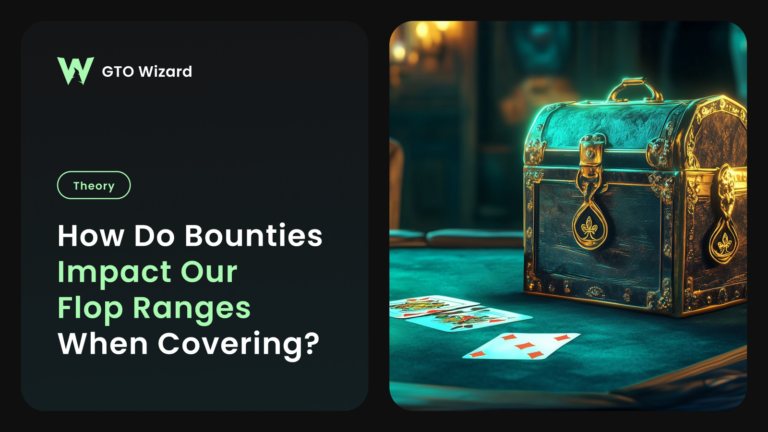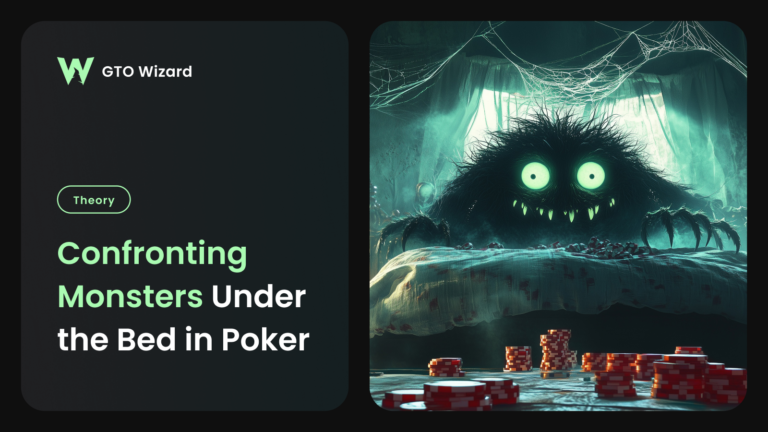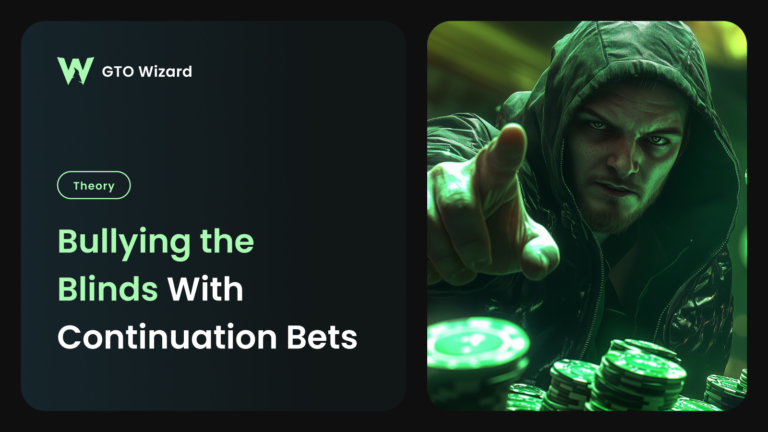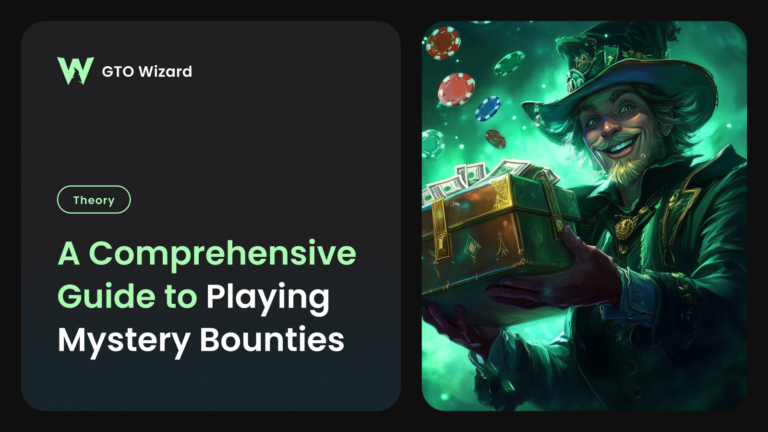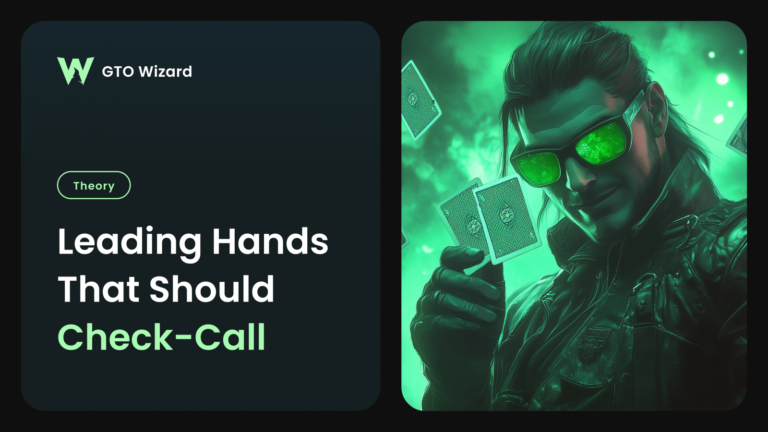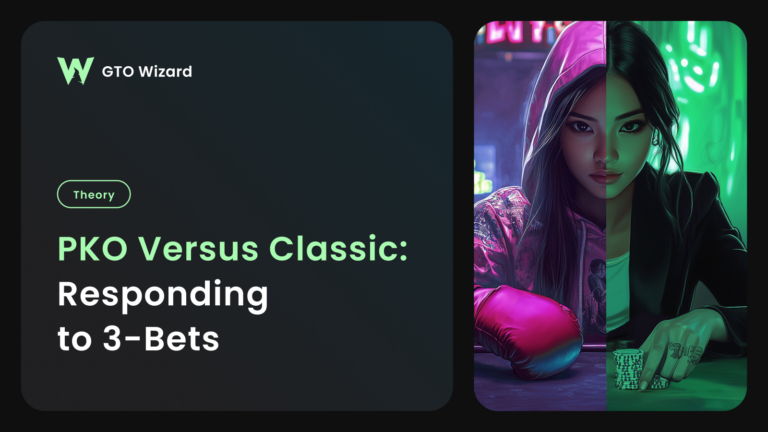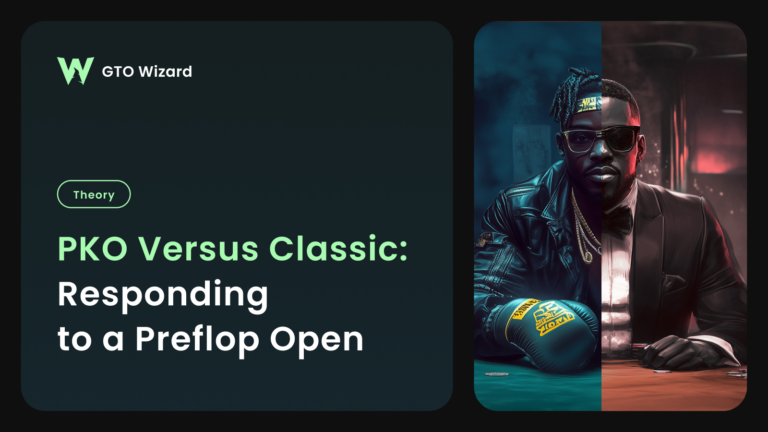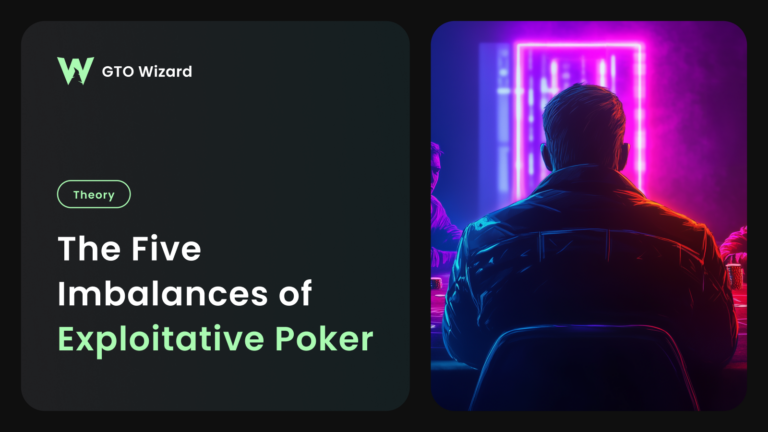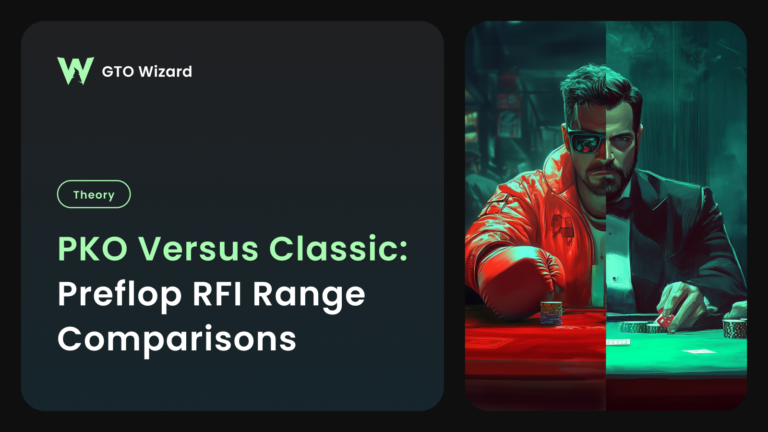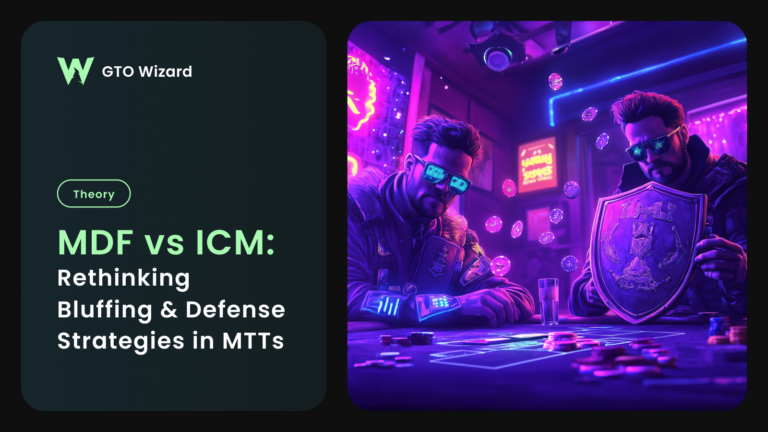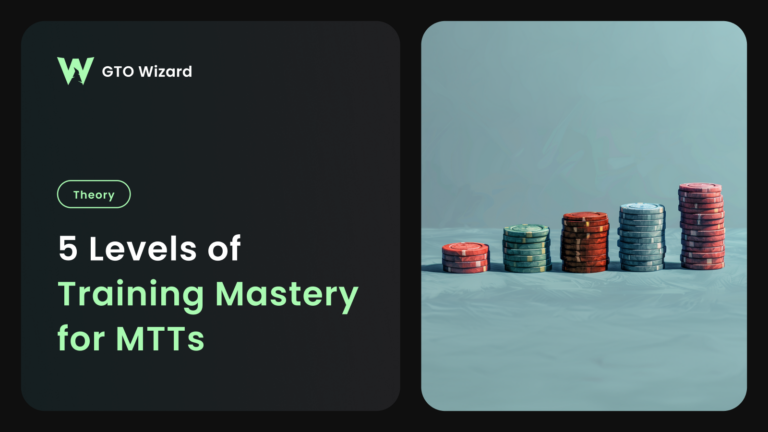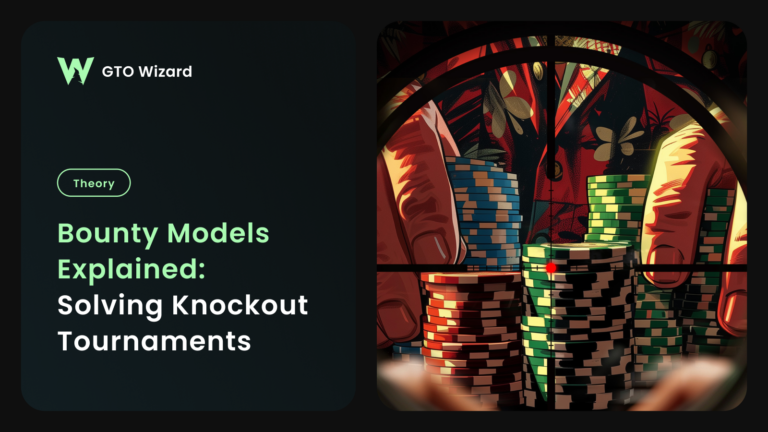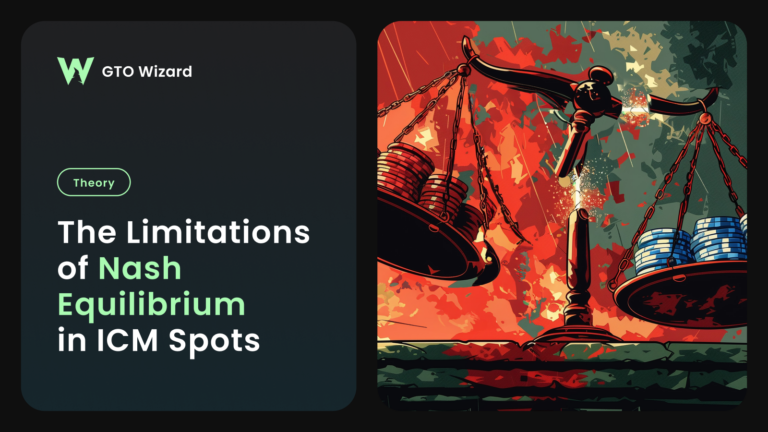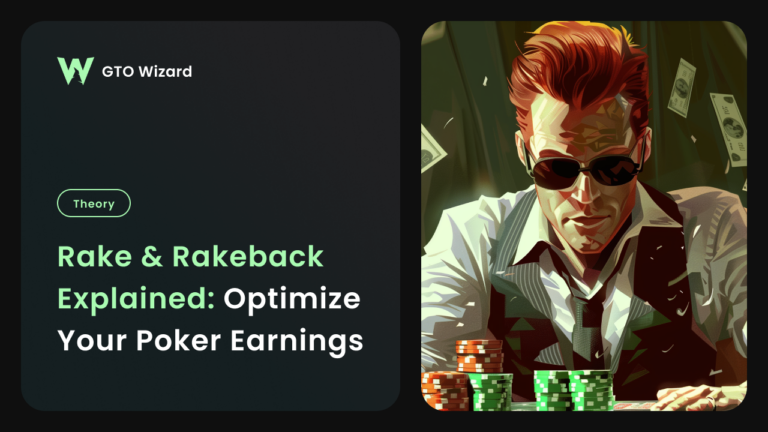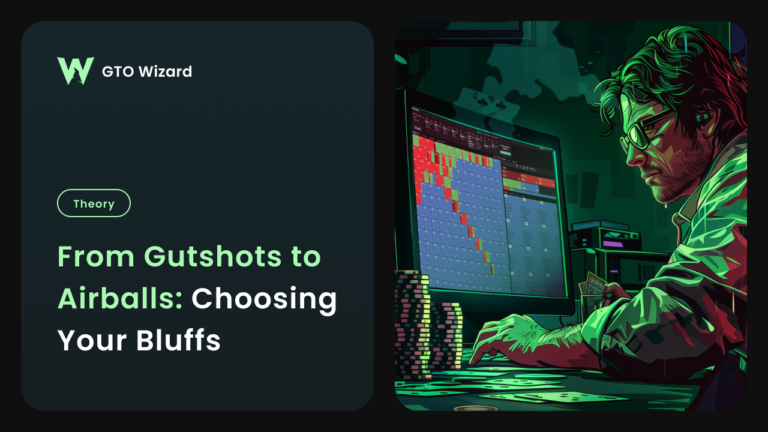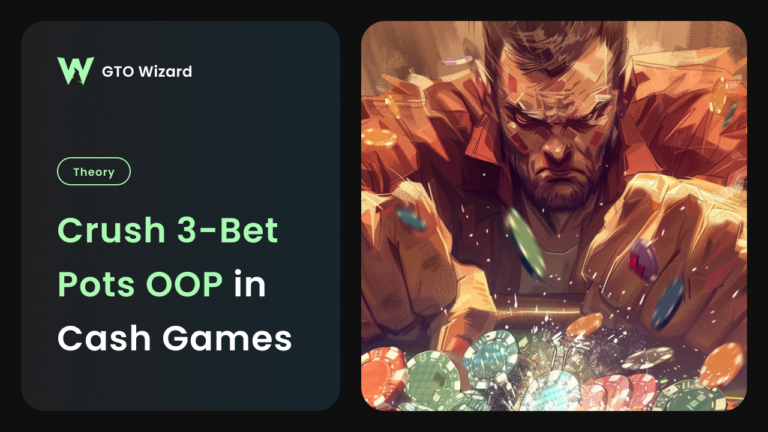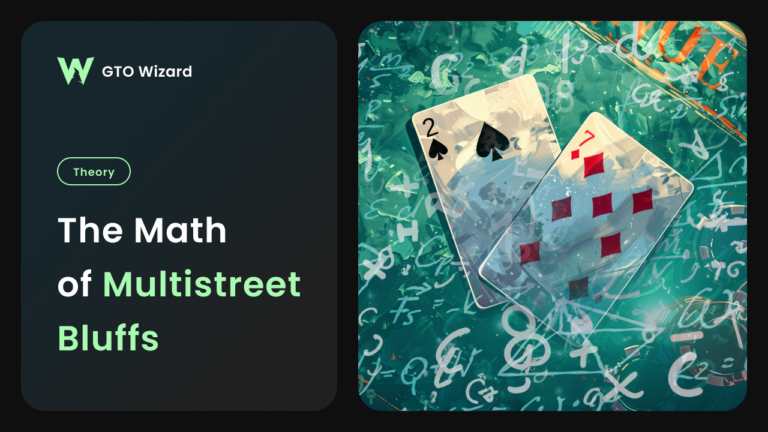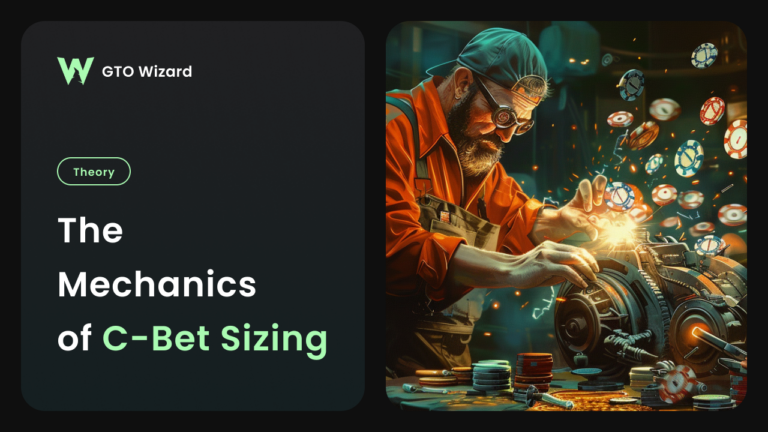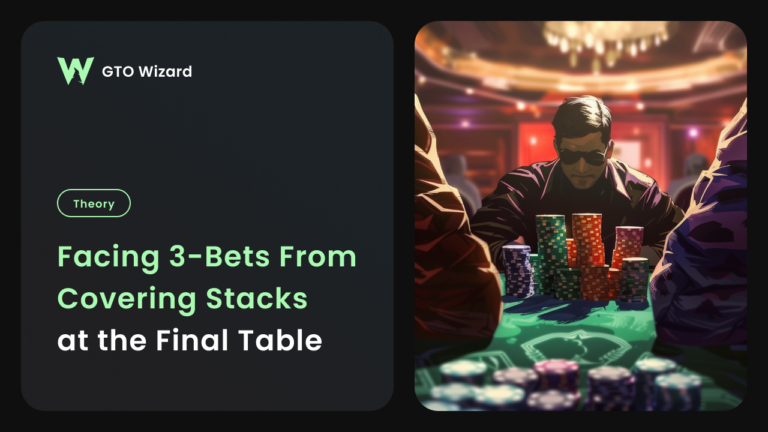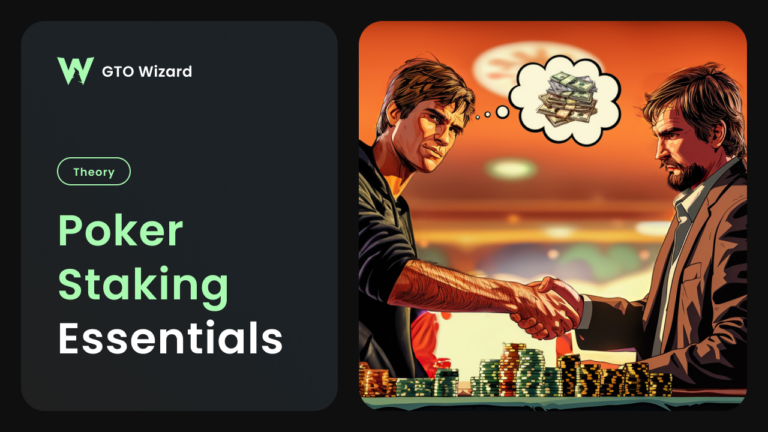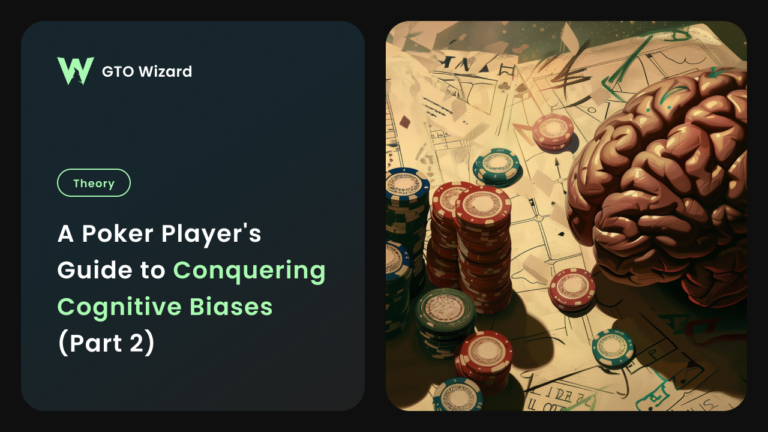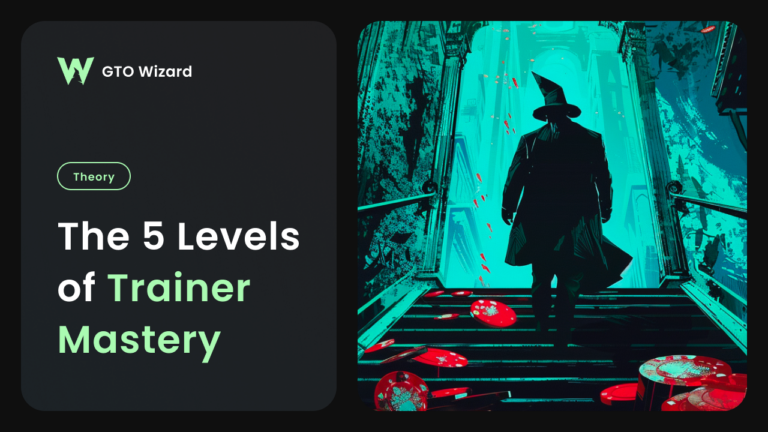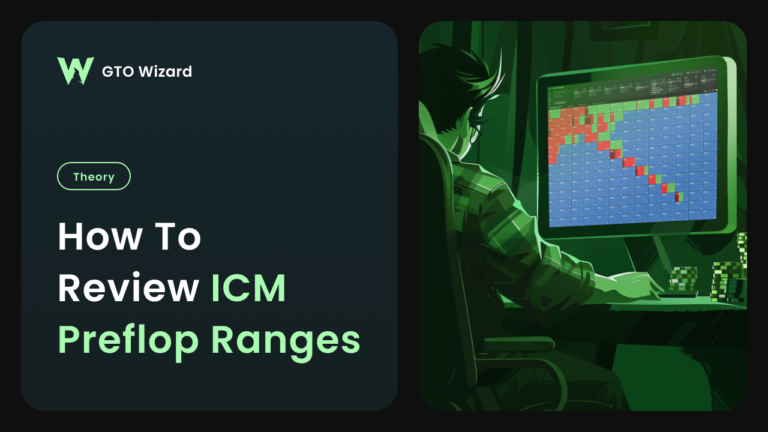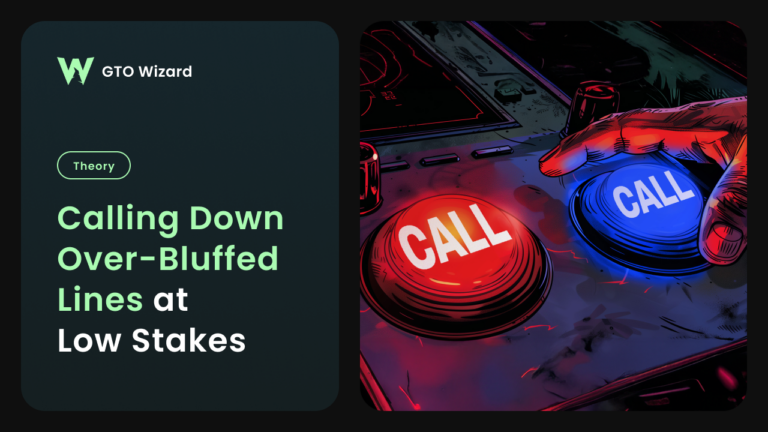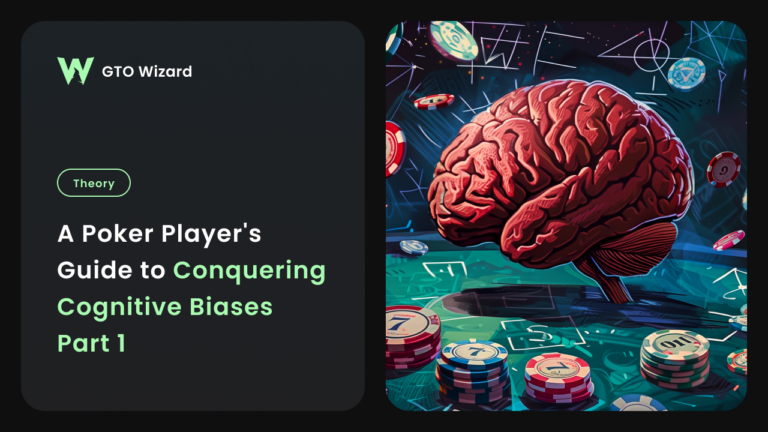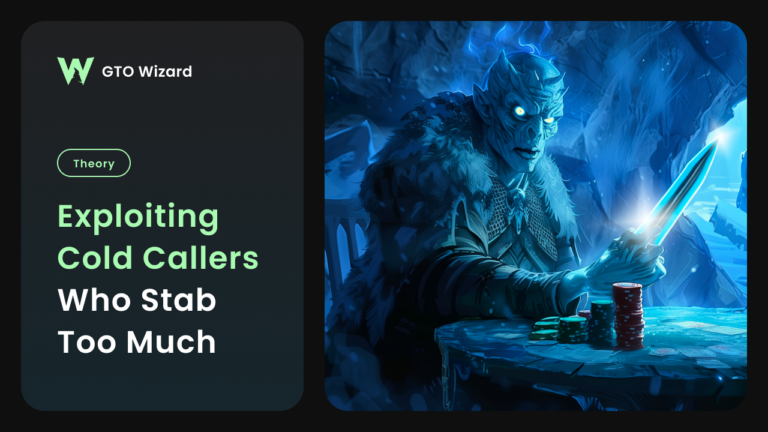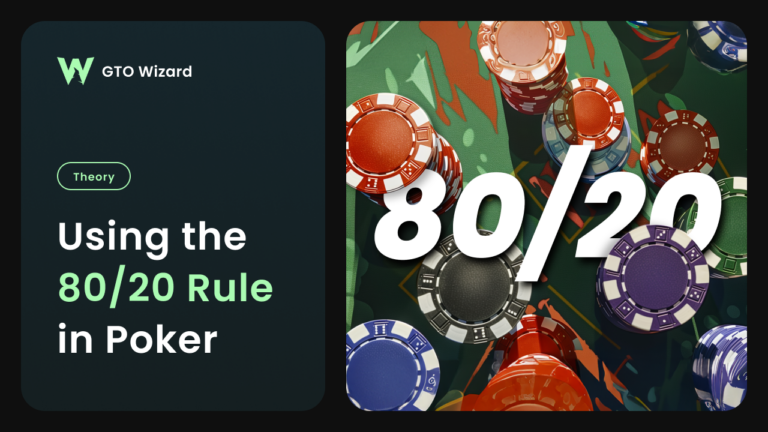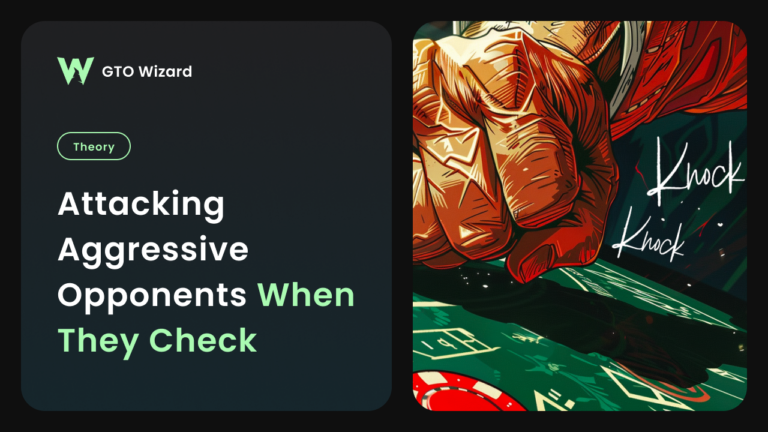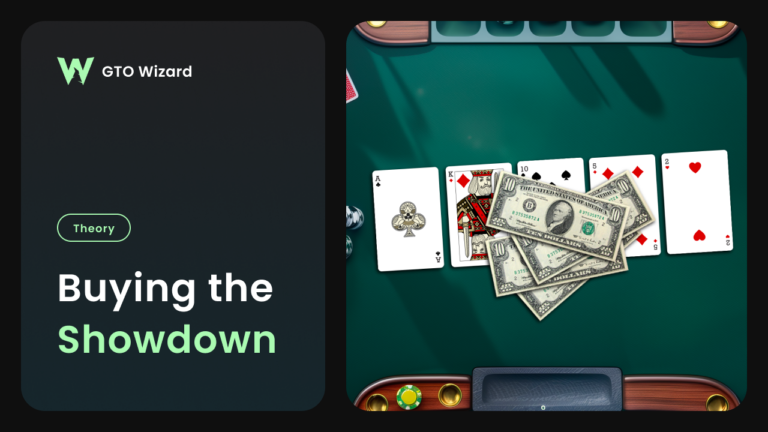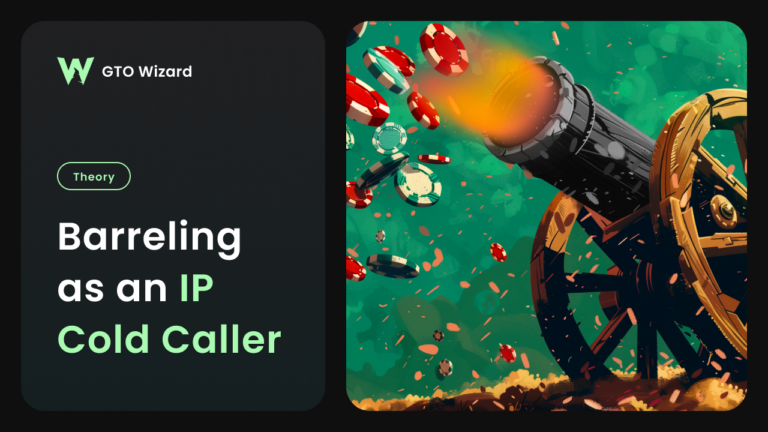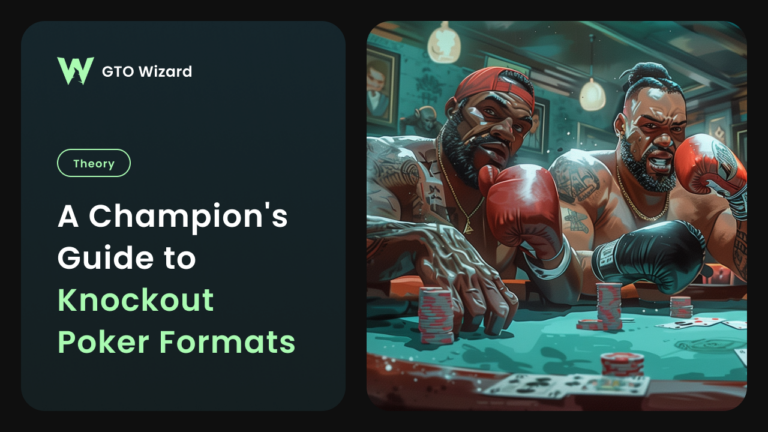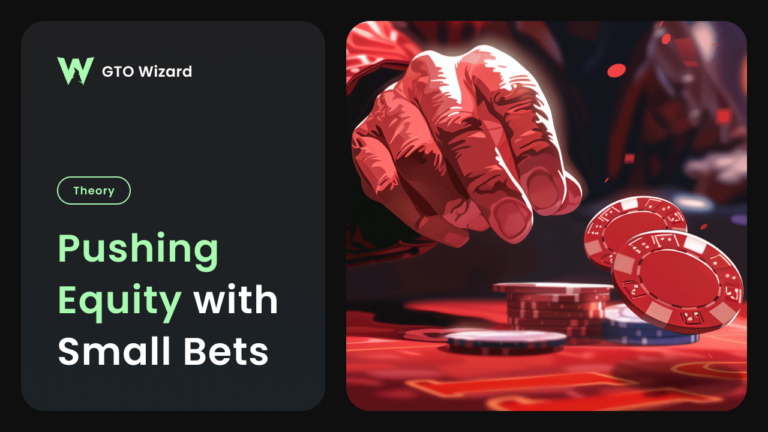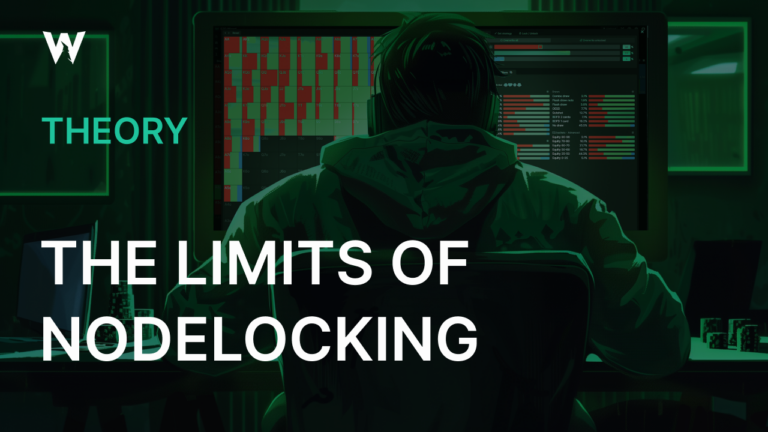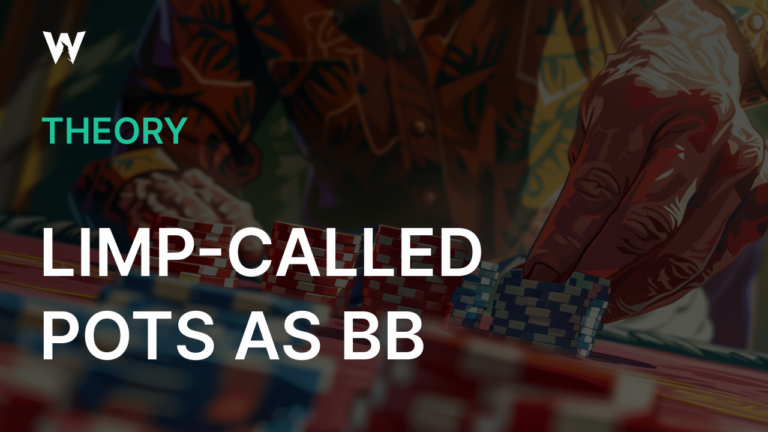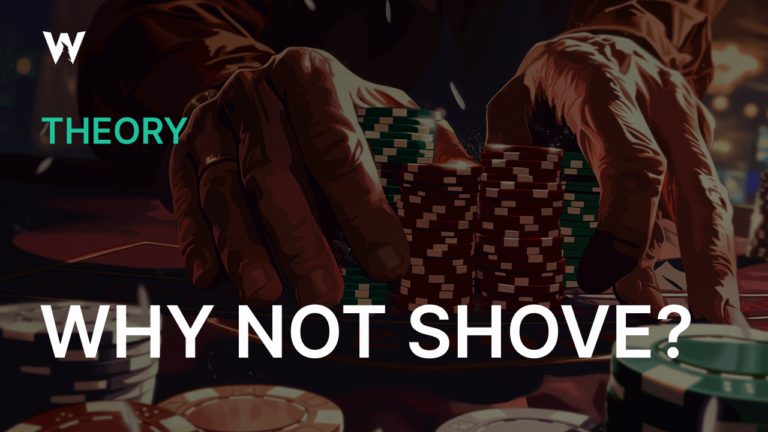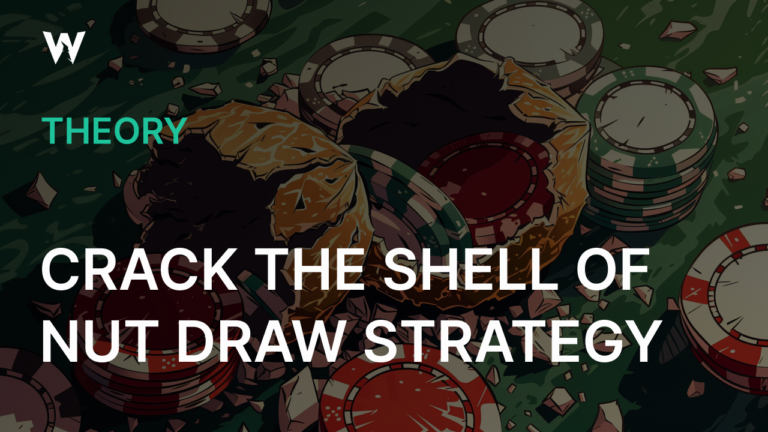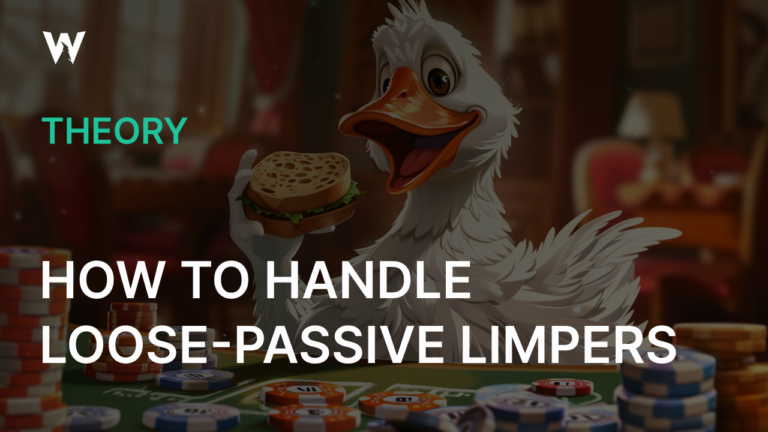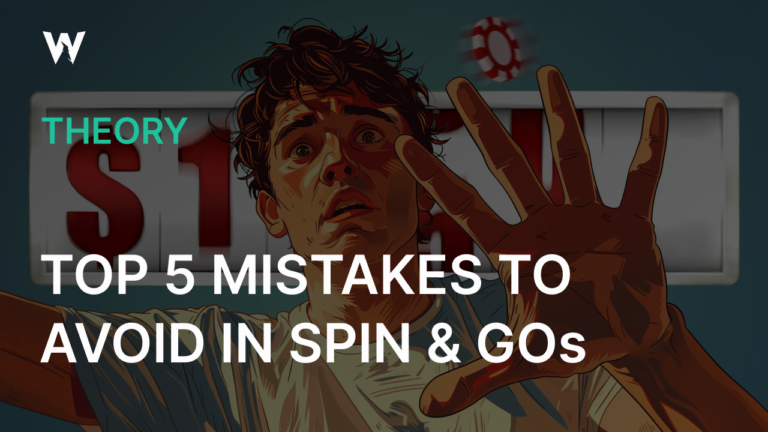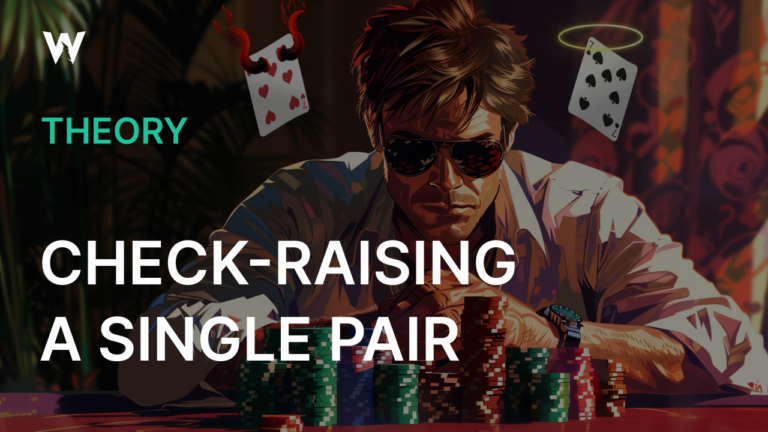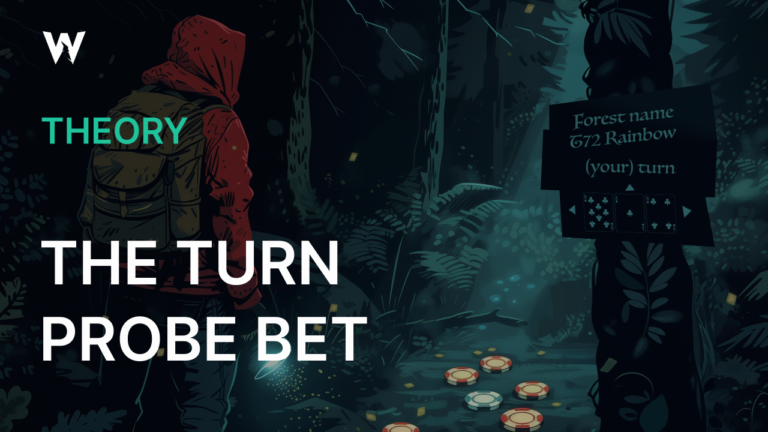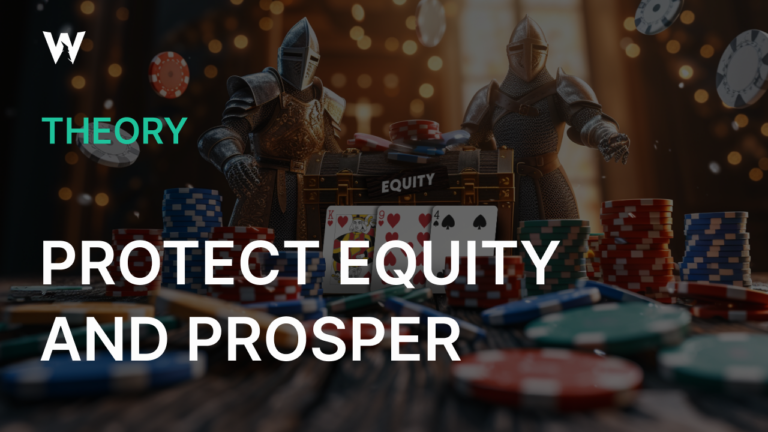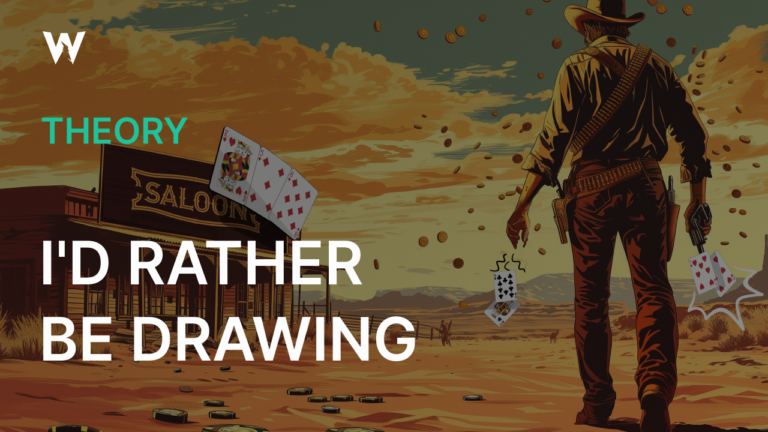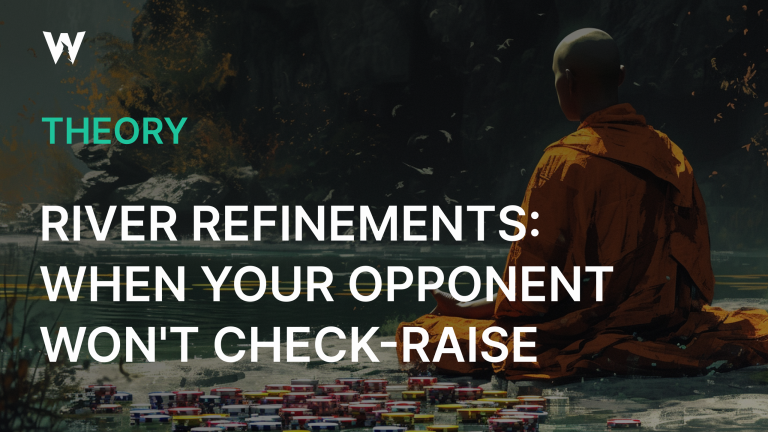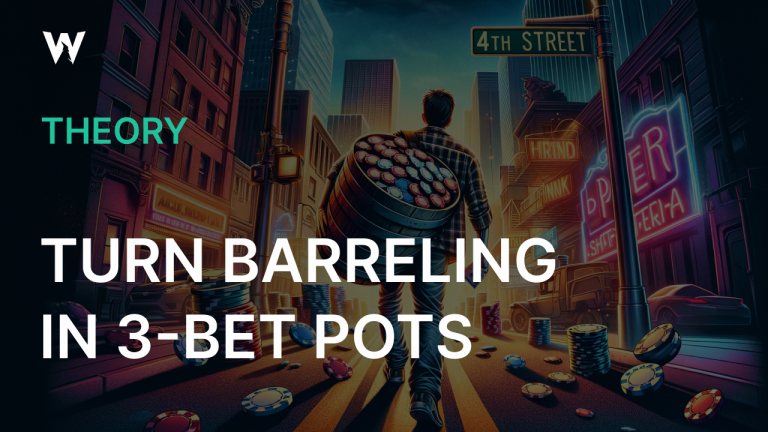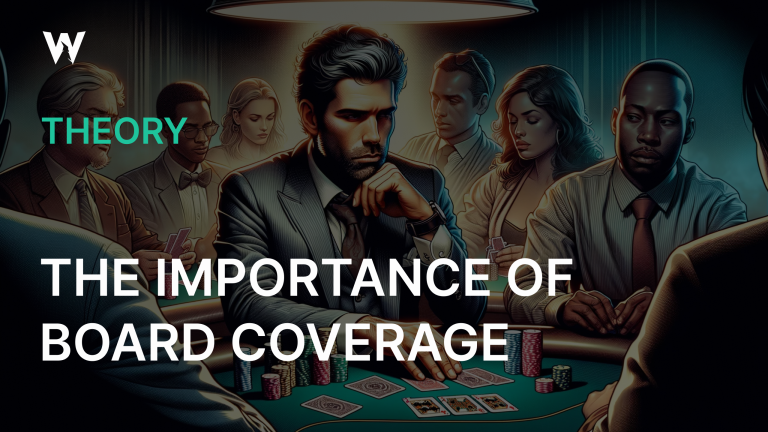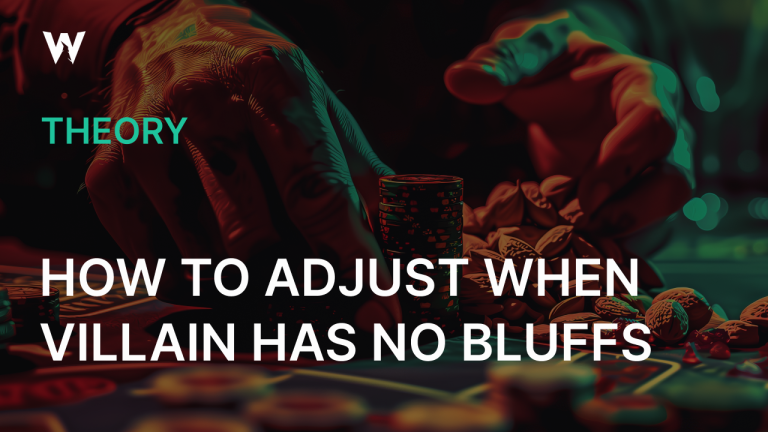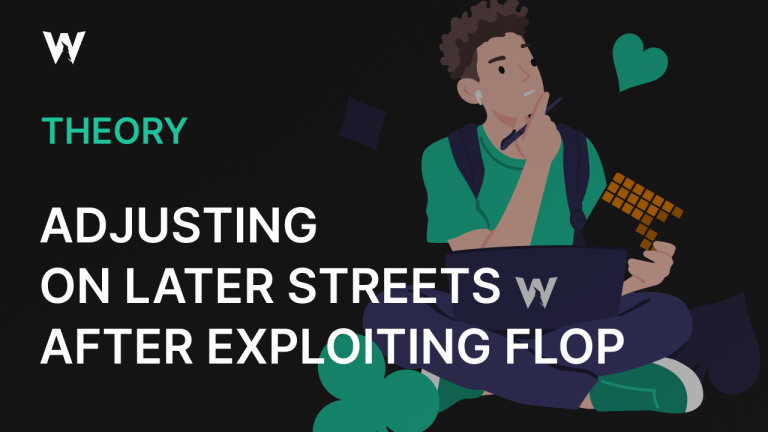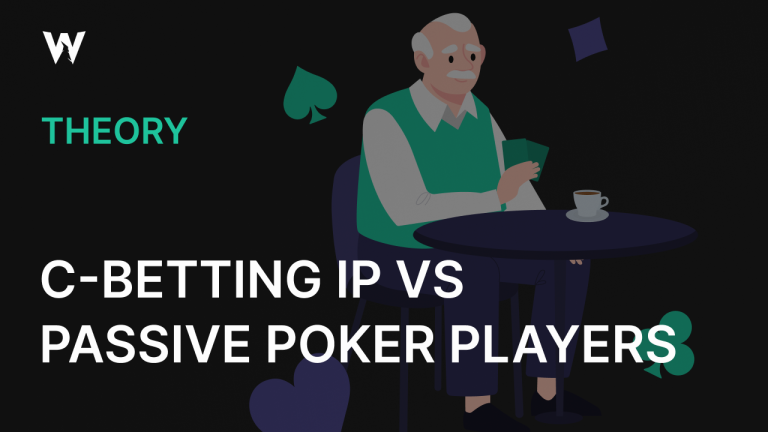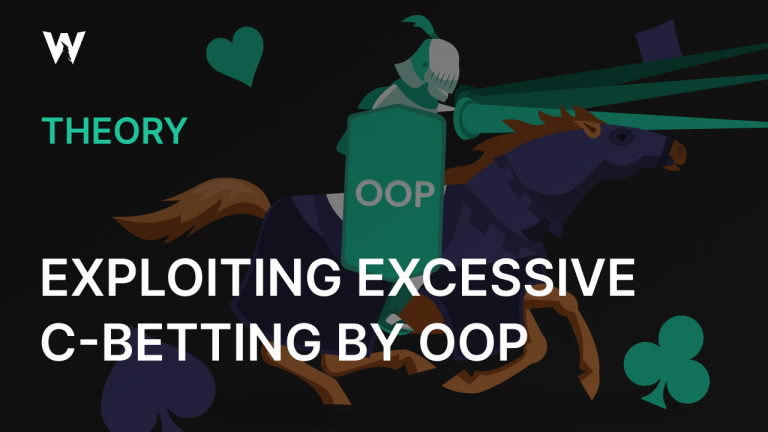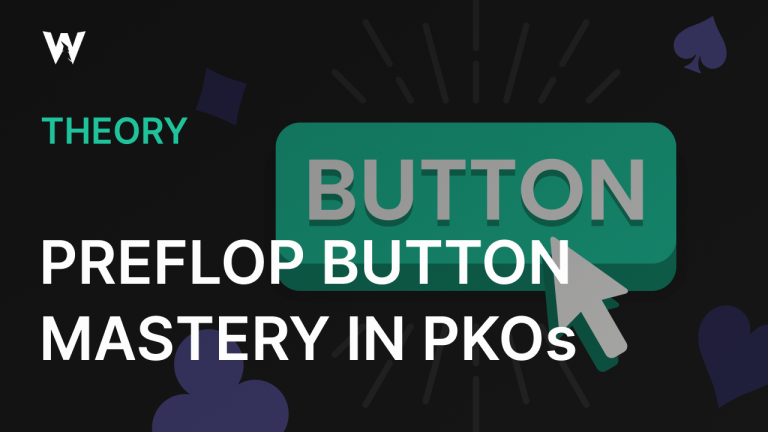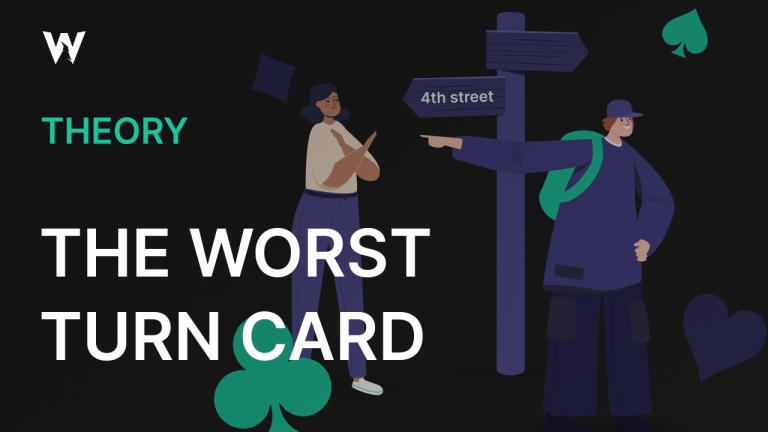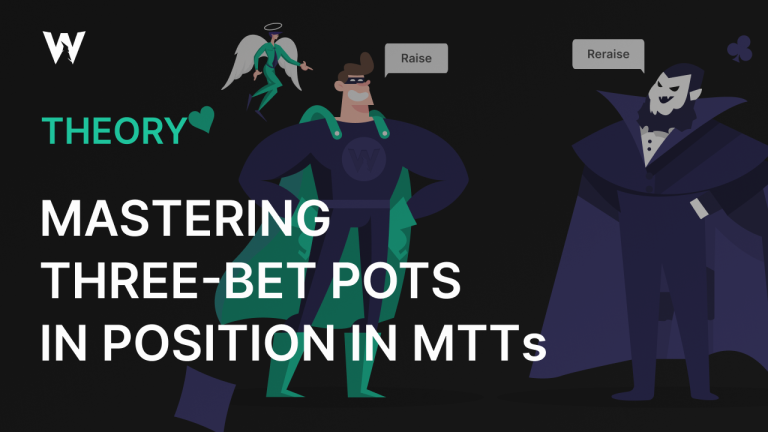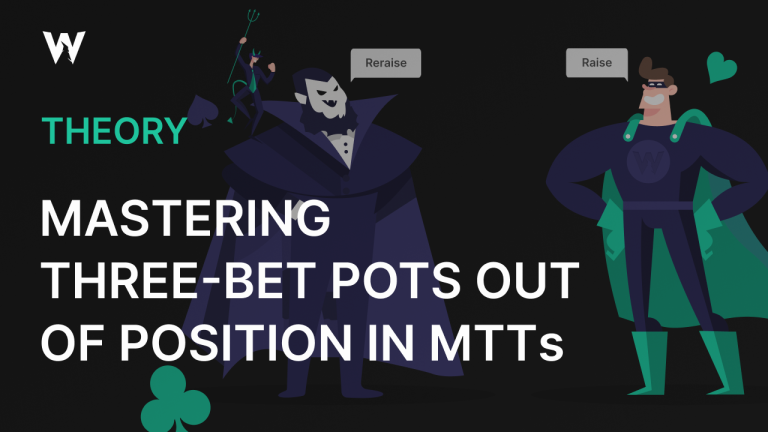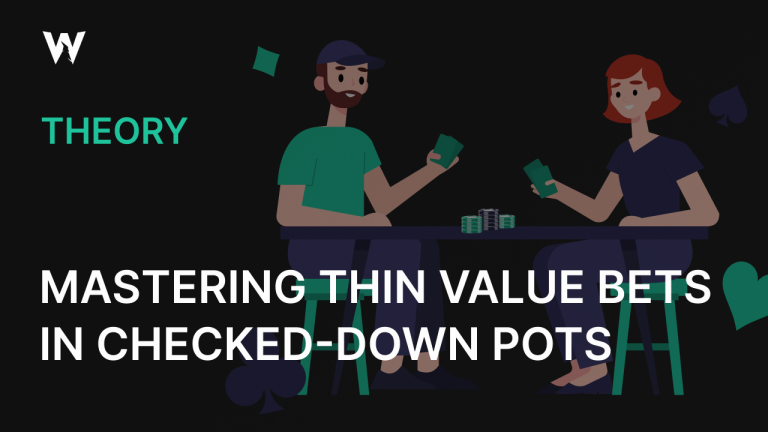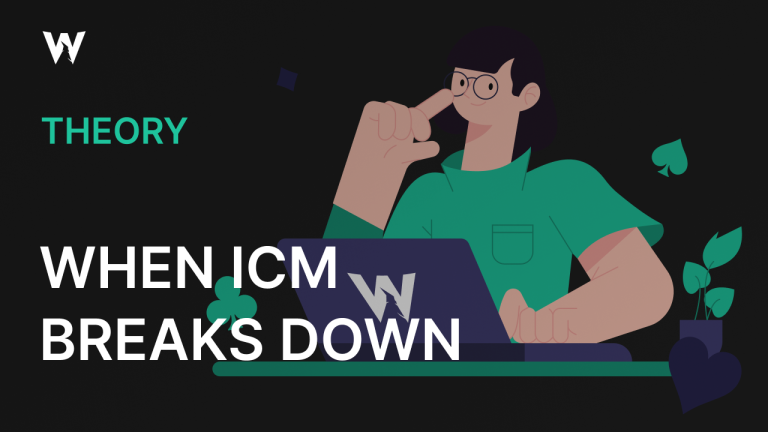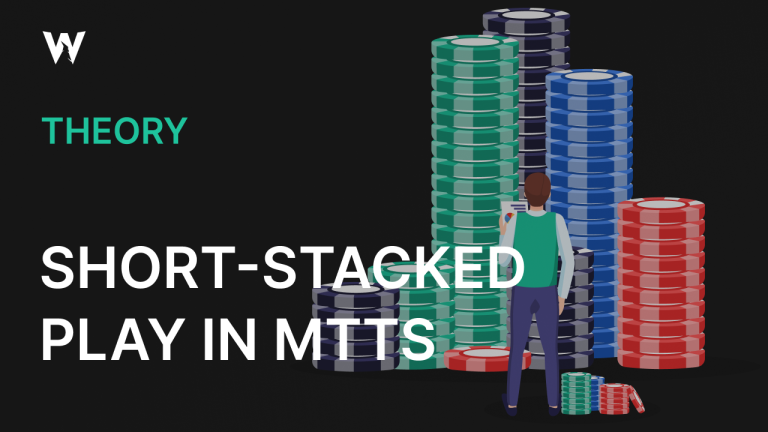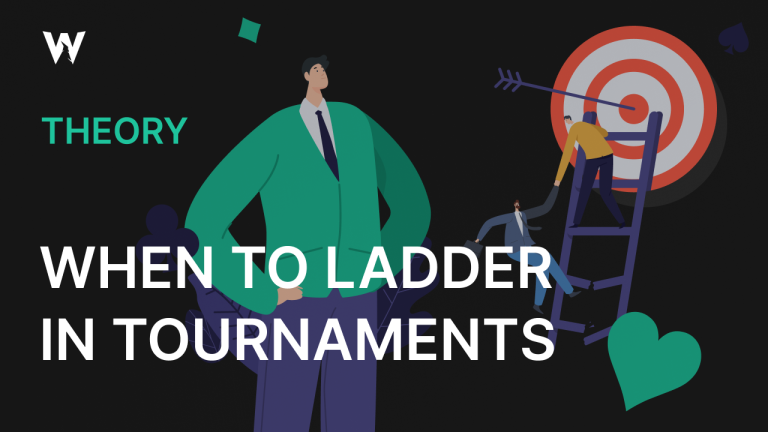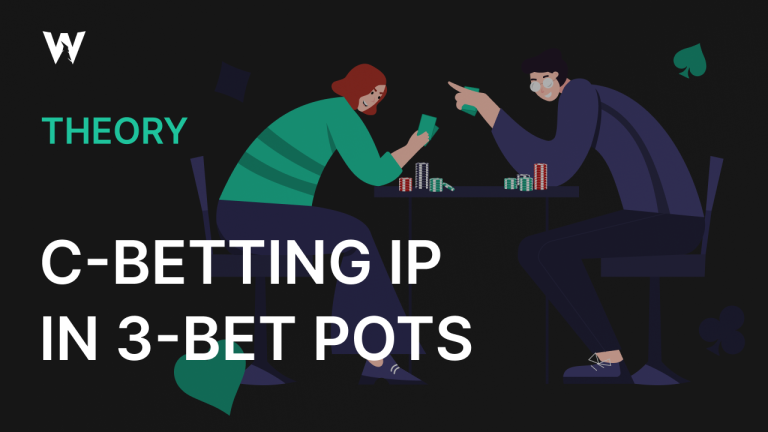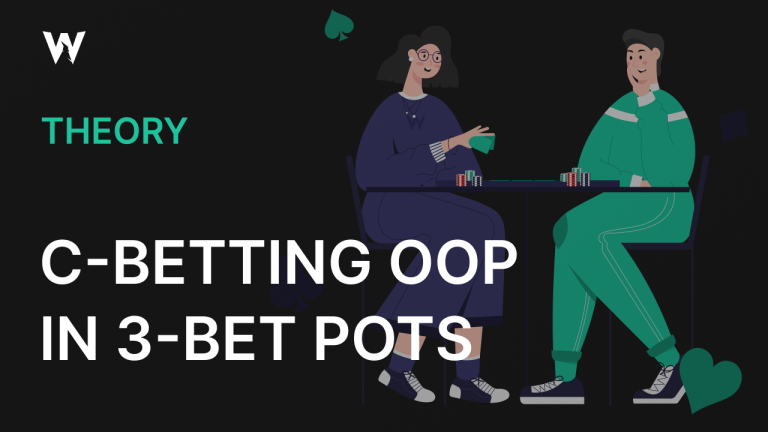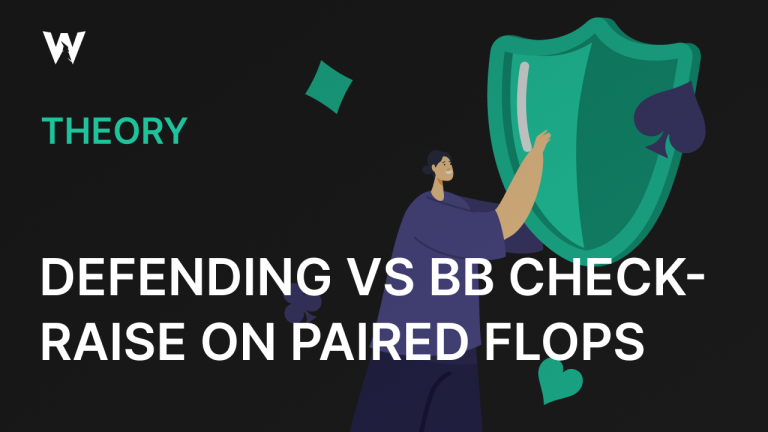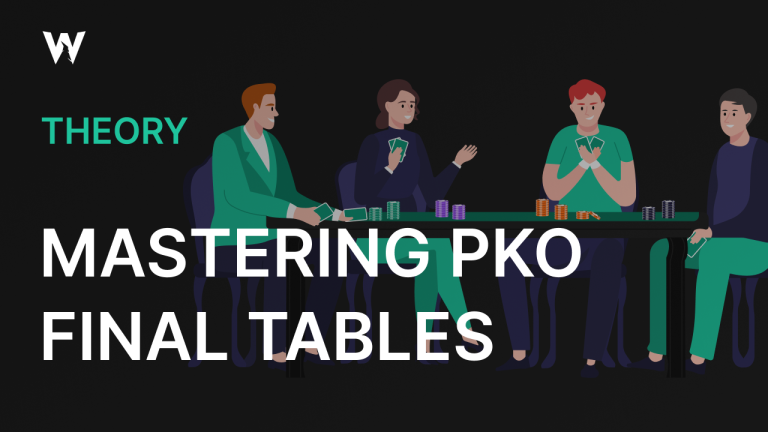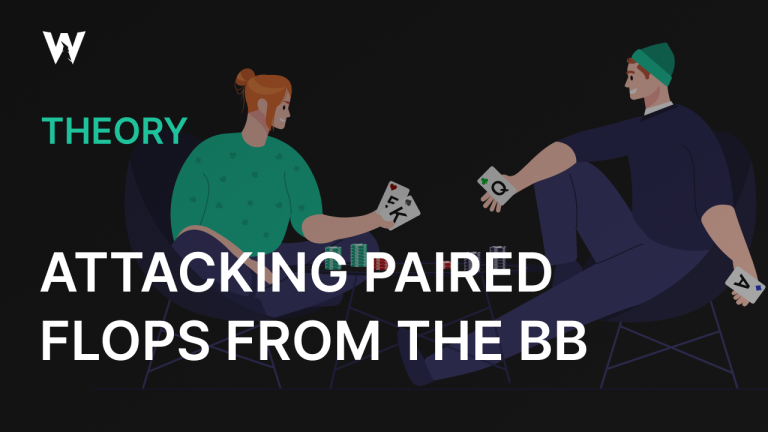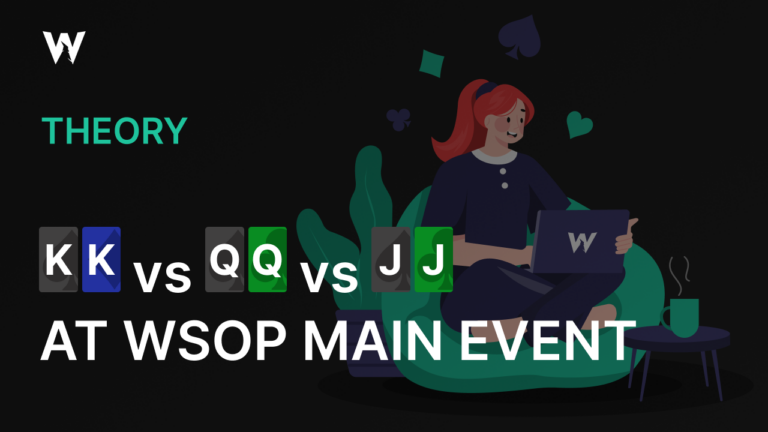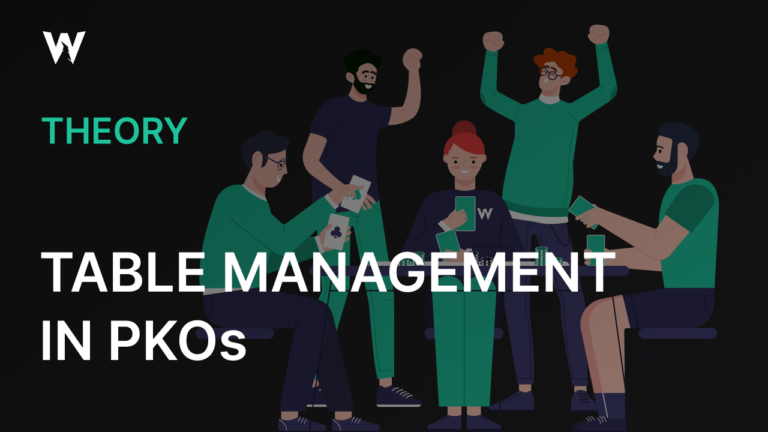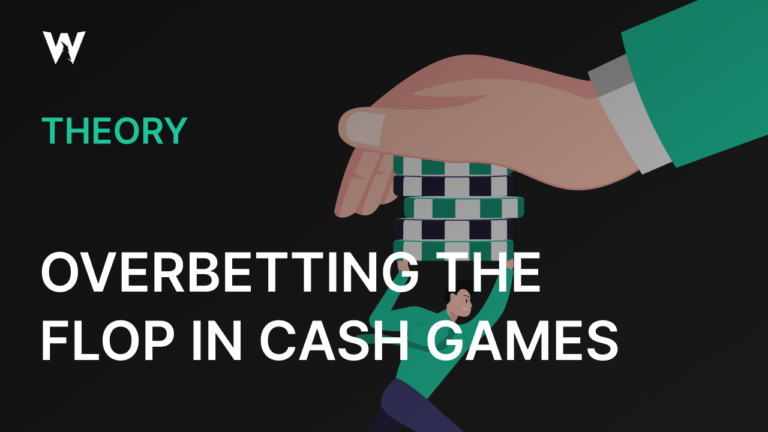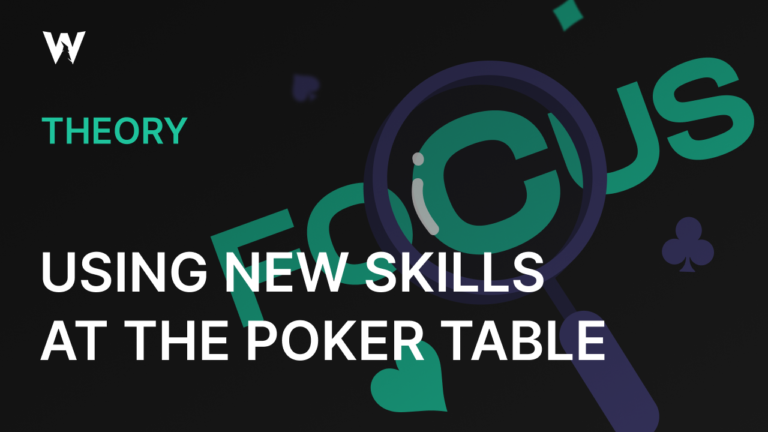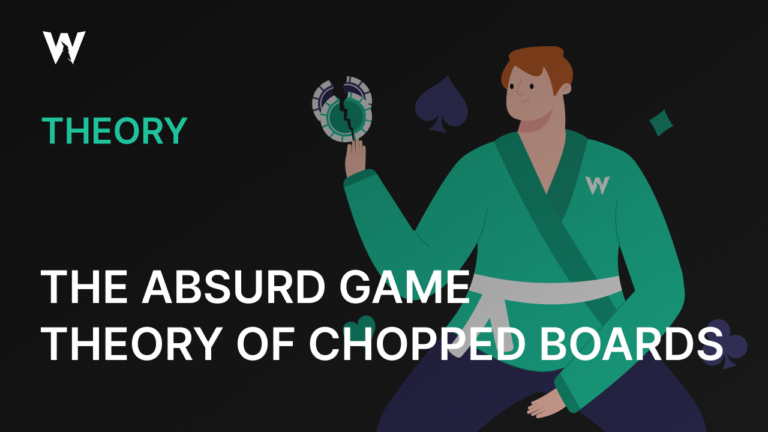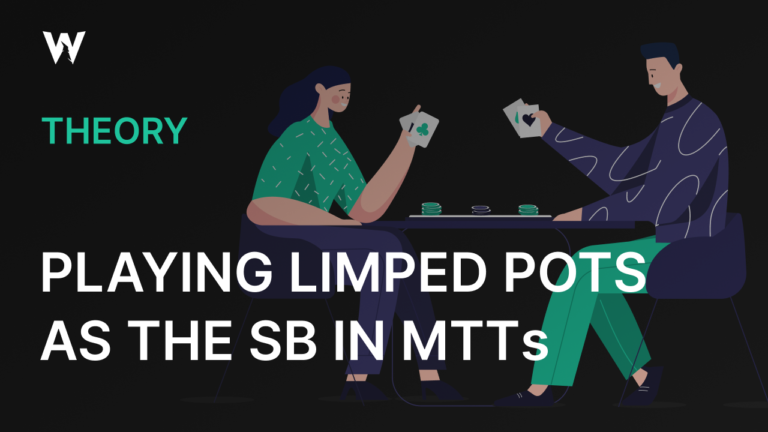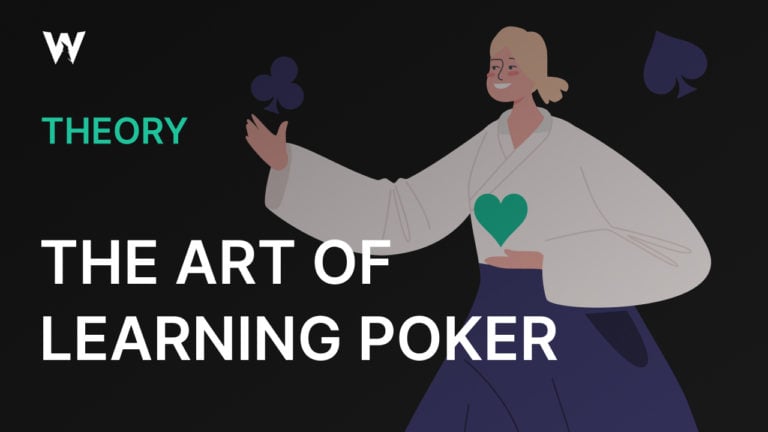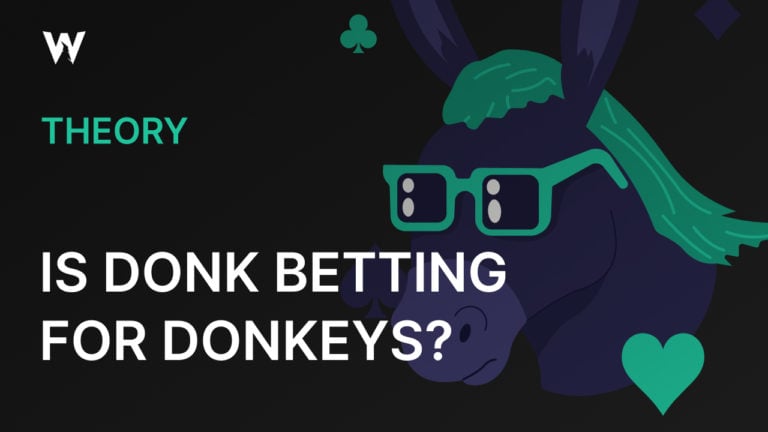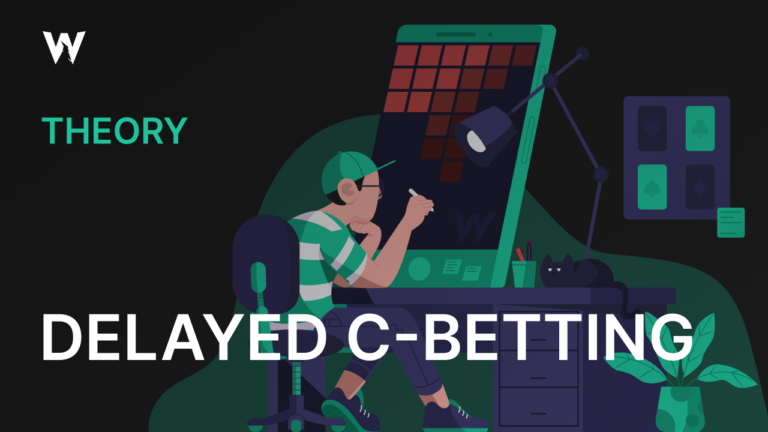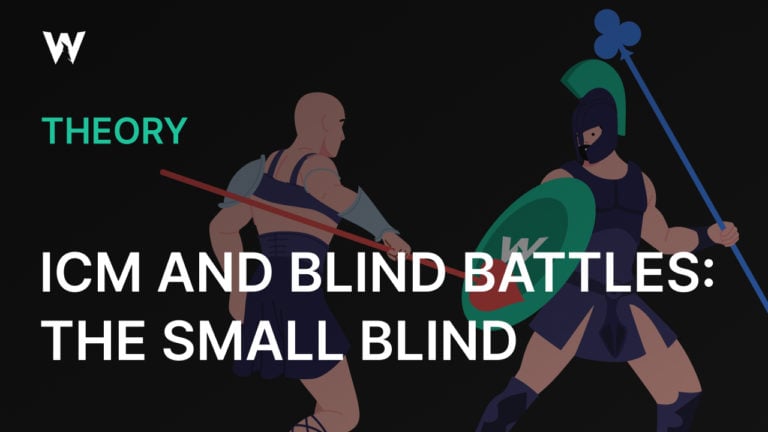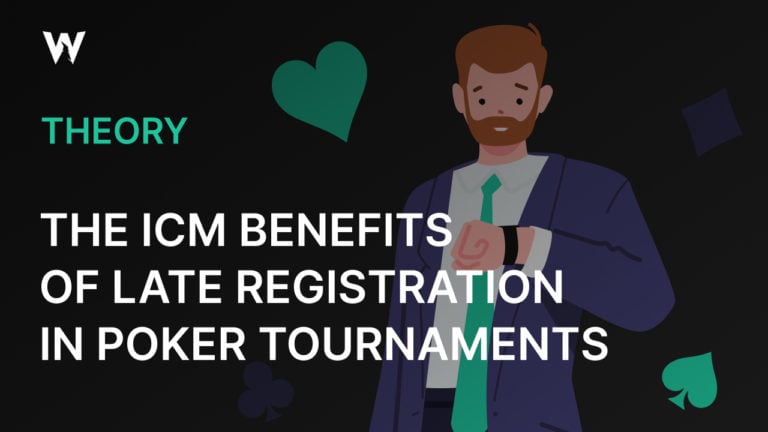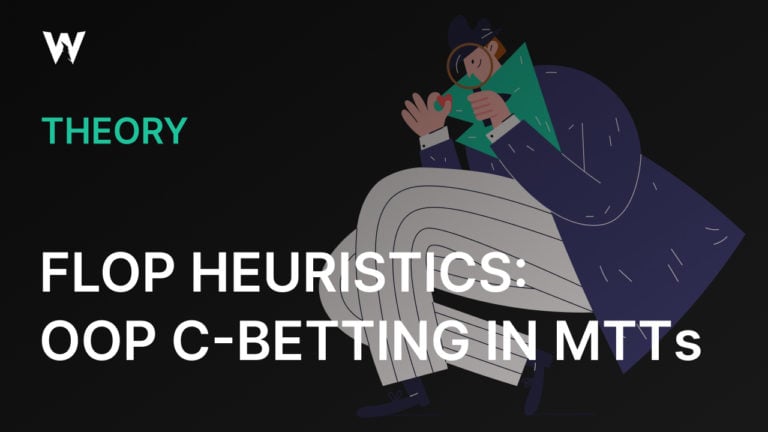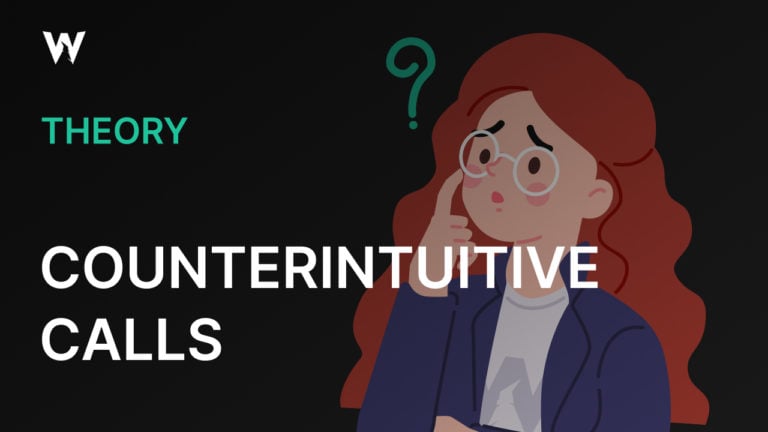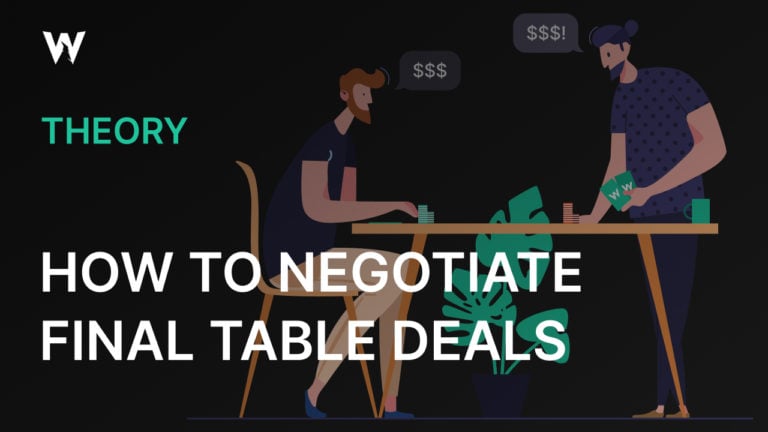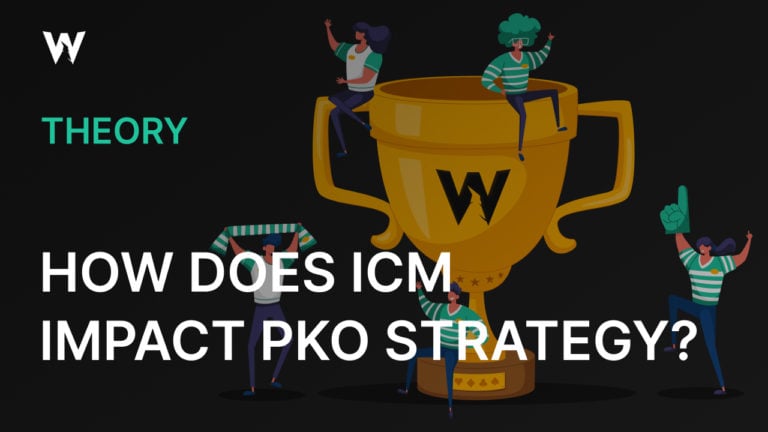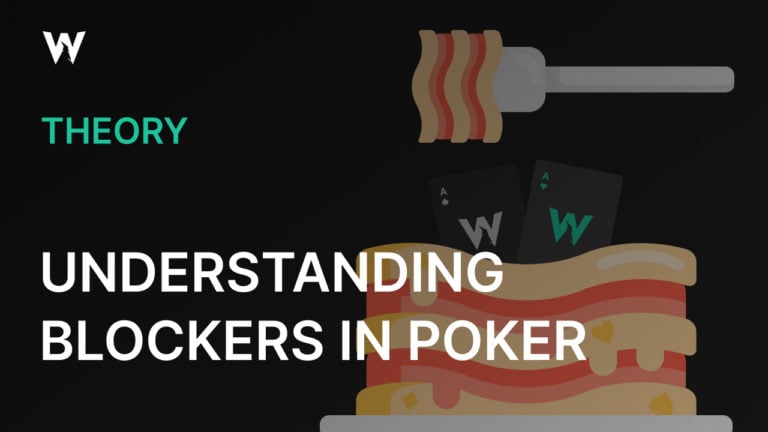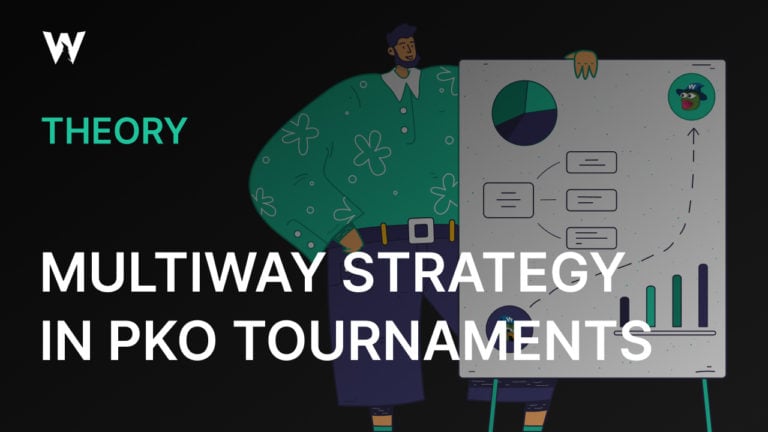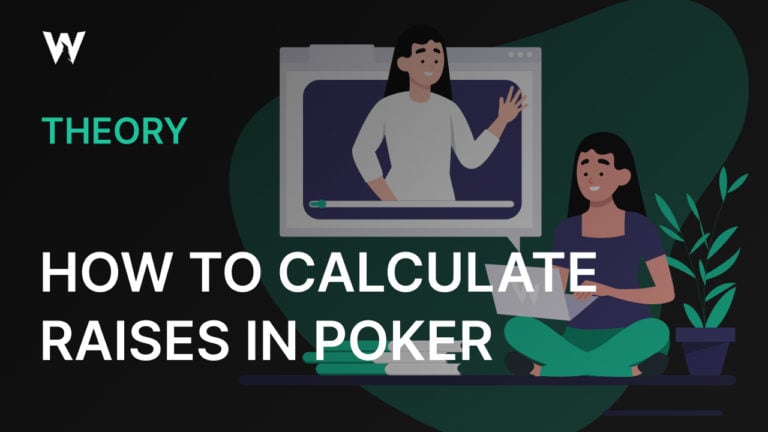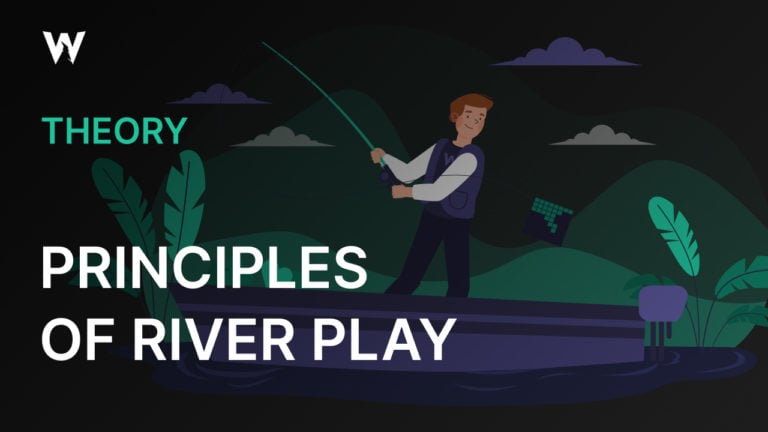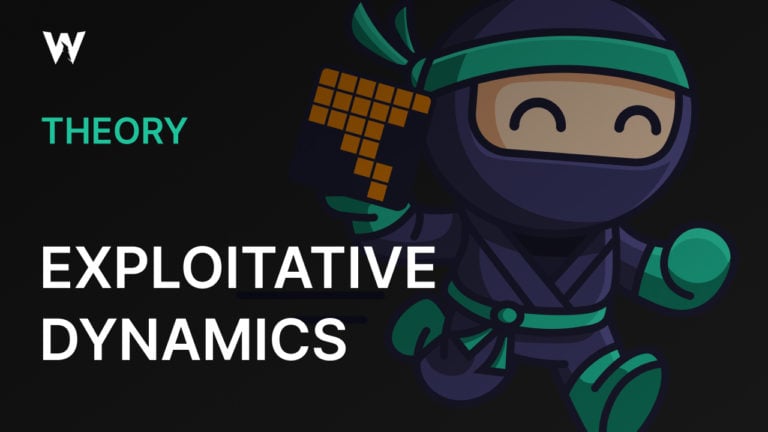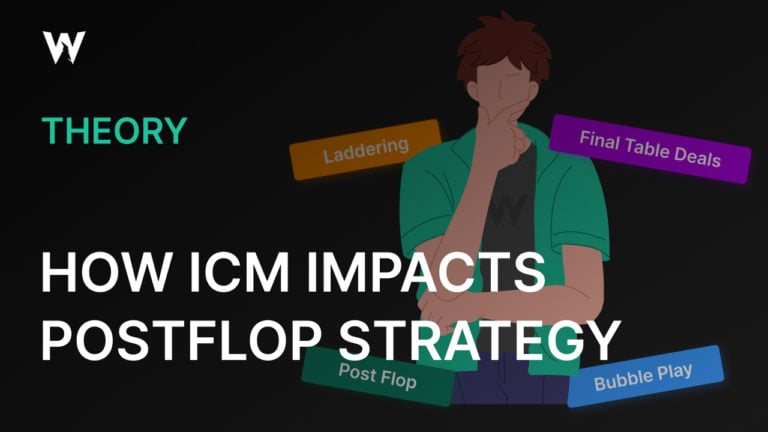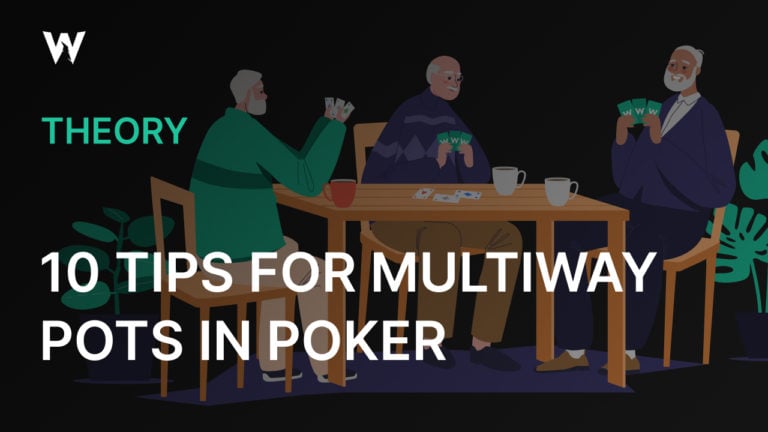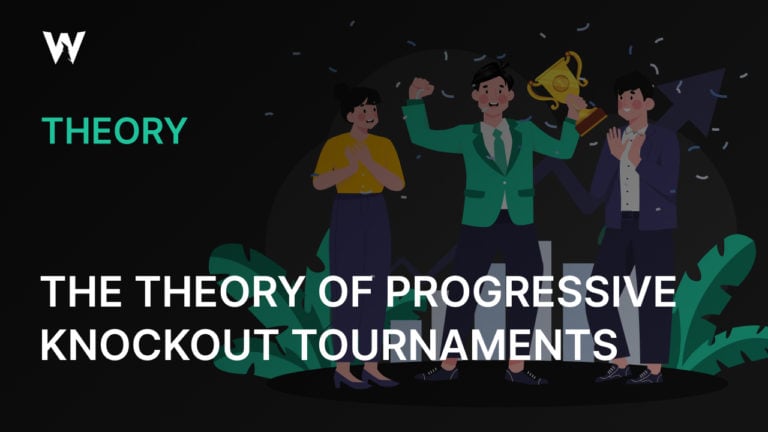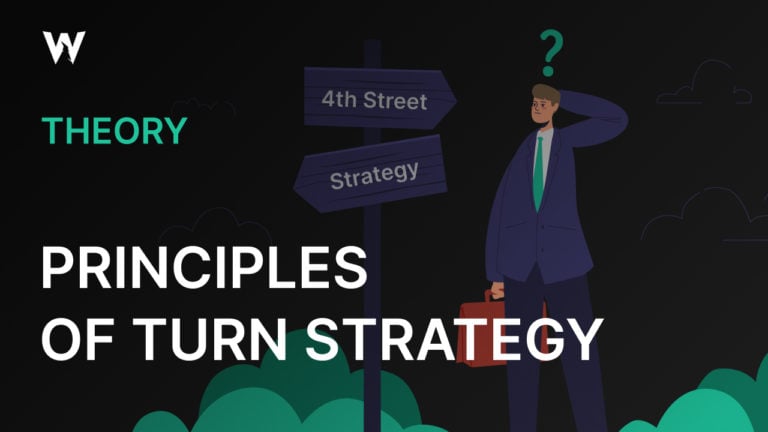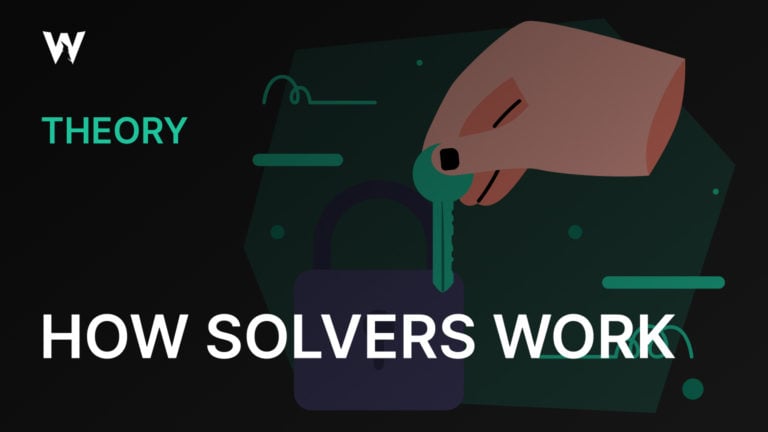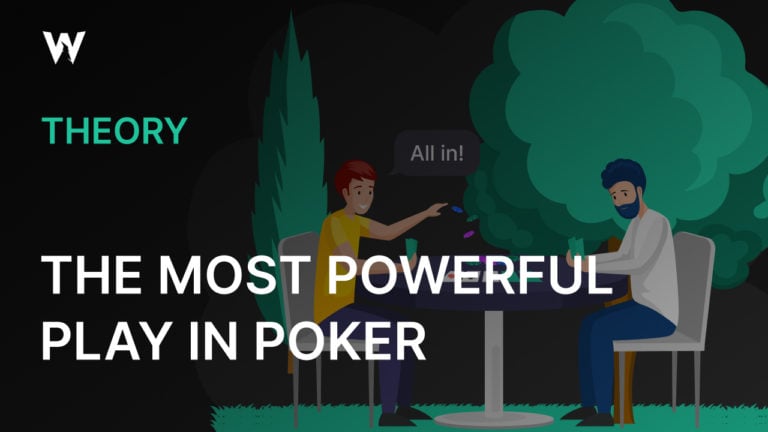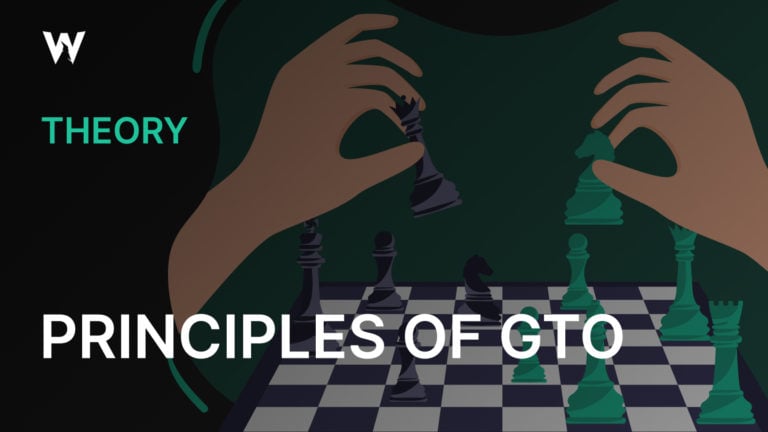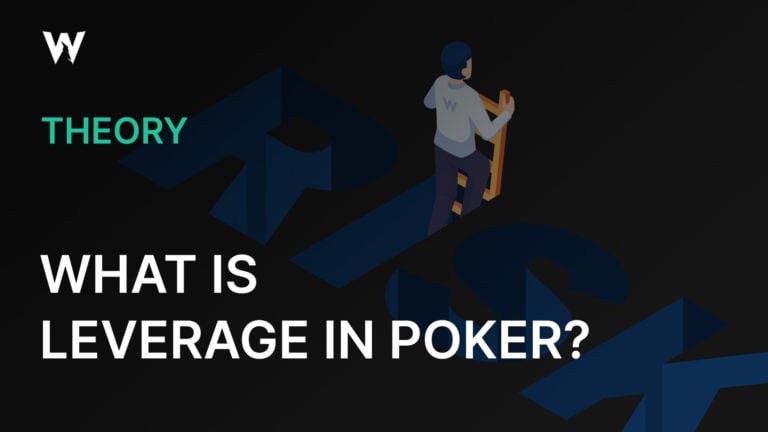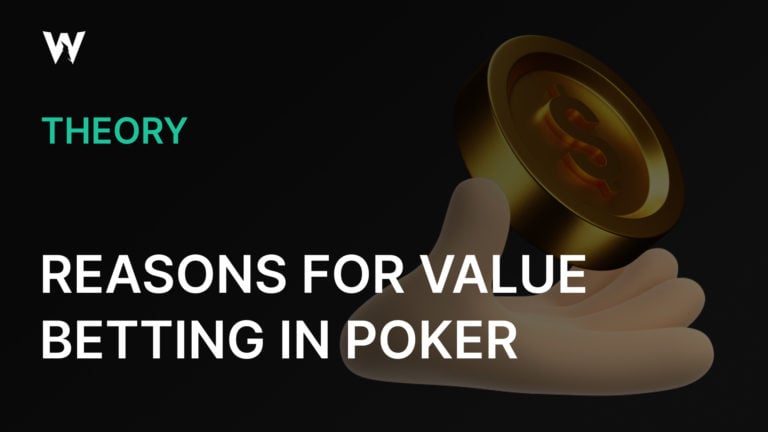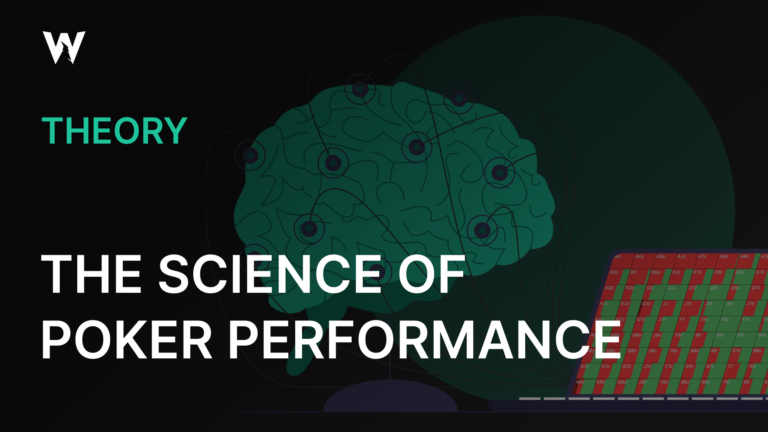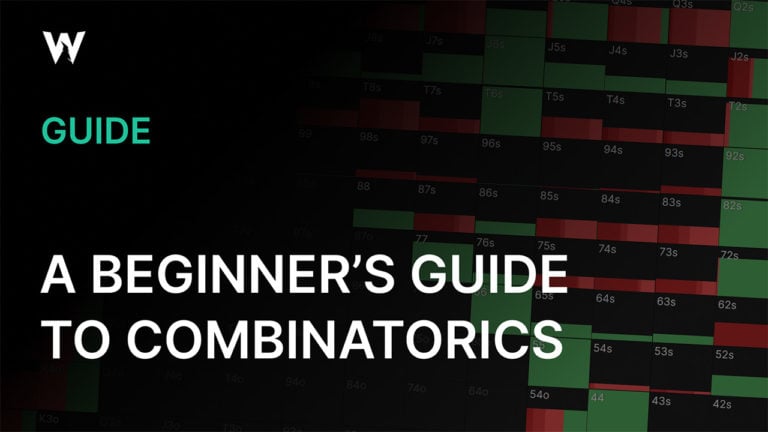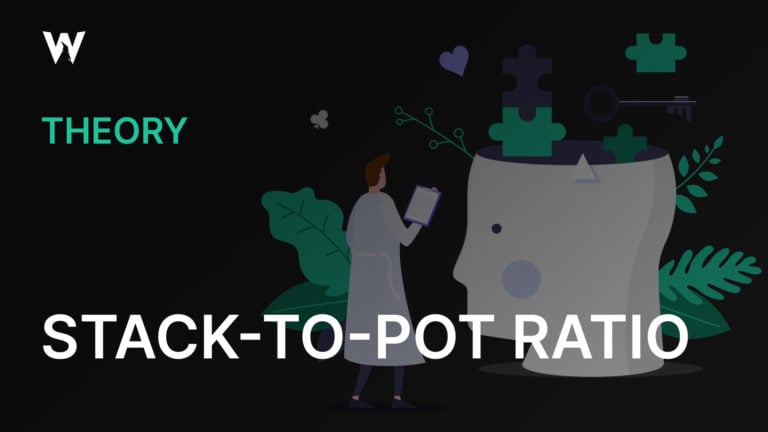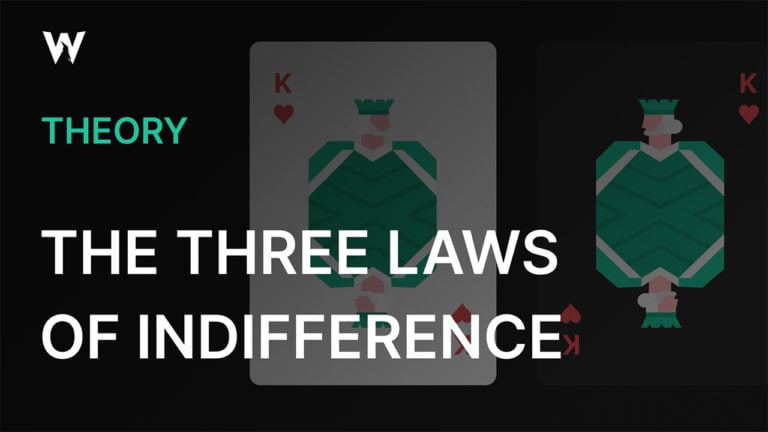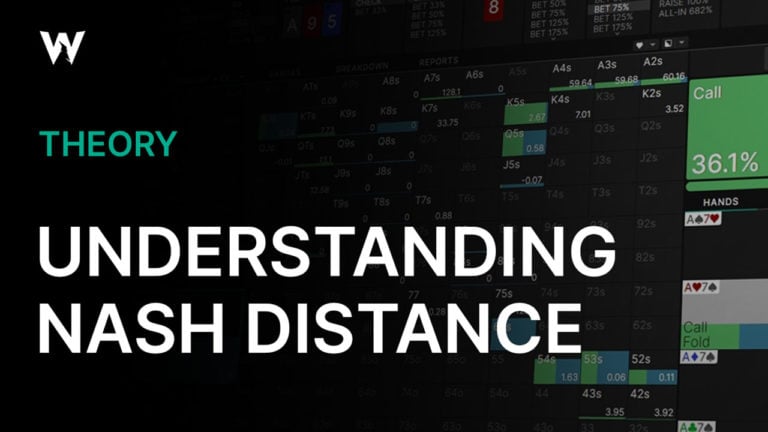How To Become a Winning Poker Player in 2025 – Part 2
Welcome back to part 2 of our series on how to become a winning poker player in 2025! In case you missed part 1, check it out here! In this follow-up piece, we will cover the second and third cornerstones of becoming a profitable poker player.
2. Study – Improving off the Felt
Playing (any game) at a high level implies that the player has gone through a process of improvement. What does this specifically look like when it comes to poker? This second chapter will examine three important aspects when it comes to leveling up your knowledge of the game.
2.1 Using a Solver Effectively
Let’s plug straight into the matrix, finding ourselves at the table playing the following hand. We have 75s in the BB and call a BTN raise. We check/call their 33% pot c-bet on K72r. After getting extracted back out, we review the spot. To our surprise, we notice that we are supposed to check/raise some of our 7-x holdings.
The next day, we play a very similar hand: the same positions, the same SPR, and only a slight change in board texture. Instead of K72, the flop is now KQ2r. We are holding Q5s. We check/raise because we assume we want to raise some of our second pairs, just as we observed yesterday during the review. Following this process in an attempt to improve led us to make a polarization error. It’s the result of a superficial use of a solver whereby we developed a wrong understanding of how this spot works.
That is precisely one of the common issues when it comes to studying with solvers. We can’t understand the reasons and concepts underlying the output by simply trying to memorize what we see on the surface. Used like this, grasping the game deeply and building sustainable strategies becomes impossible. Another problem is that without understanding what is happening, we will feel completely lost in slightly different scenarios and unable to modify strategies on the fly.
It’s impossible to understand the reasons and concepts underneath the output by simply trying to memorize what we see on the surface.
When studying with a solver, what we should do instead of memorizing what the output looks like is figure out the reasons why the output looks the way it does.
Example
The root cause in our imaginary story was that we didn’t bother finding out why we were supposed to check/raise some 7-x holdings when that surprised us in the output. So, let’s dig deeper…
Looking at the BTN’s betting strategy (see the Ranges tab below), we see that IP is betting almost their entire, extensive range for a small size because it enjoys an advantage throughout and has many hands that benefit from protection.
Now we know that the BTN is betting a very wide range, including many air hands. Our 7-x holdings, especially the ones with a low kicker, all benefit from protecting against that air in BTN’s range—hands with two overcards to the seven that can’t continue versus a check/raise.
This finding is then a clue to start understanding why our Queen-x holdings on KQ2 do not want to check/raise: The benefit of EQ denial is pretty low because overcards to the Queen are pretty rare.
Suppose you adopt these two study habits of consistently asking questions about and finding reasons for the solver’s output. Doing so will naturally result in the development of a deeper and deeper fundamental understanding and being more critical of the heuristics you collect to help navigate through all kinds of different spots.
To learn more about studying solver output, check out our complete guide!
2.2 Creating a Consistent Study Routine
Consistency is an important trait to nurture if you want to make great strides in your journey towards the peak of your potential. Implementing routines will help you overcome laziness and procrastination, build momentum to stay on course, and develop confidence in your abilities. Schedule regular study sessions you know you can keep up with.
There are a lot of options when it comes to studying. Here’s a small selection of a couple to get you inspired:
- Review your game by going over your database of hands to spot leaks. It’s even better with a stronger player than you, like a friend or a coach. GTO Wizard’s Hand History Analyzer can be a great tool for this as well.
- If you prefer a study environment that’s closer to actual gameplay, our Trainer and its drills might be the tool to seek out. It allows you to practice different spots in a playful and fun way.
- Studying specific spots to build strategies and a deeper understanding of the game, as we did in the previous section.
There are two points that I want to bring to your attention when it comes to drilling and studying spots: comparison and specificity. Being specific makes it less likely to get overwhelmed, which makes you lose sight of your goals for this session. Instead of saying, “Today, I will study 3-bet pots,” try, “Today, I will study 3-bet pots OOP as SB vs BTN on Ace-high boards with two low cards.” Specificity also supports pattern recognition when you compare similar textures. Juggling all kinds of different spots at once without a plan will make it way more difficult to understand the why of what is happening. Similar to trying to find an object at a long distance with the naked eye. We need to grab a telescope and go over each area in detail, step by step.
2.3 Investing in Education
It’s not impossible to succeed by purely depending on yourself—without people who have similar aspirations, without material from people who have built up competency—but it is not very likely either and will lengthen your learning curve significantly. Here are a few different ways to educate yourself in poker:
- We start with the basics and don’t even need to spend any money. In today’s world, there is an abundance of information available for free on the internet: articles like this one, videos on YouTube, or forums like Discord where you can ask questions and find study partners.
- The next step is paid content: courses, a license for a solver (one-time cost), or a subscription to a library with solver solutions (recurring cost). As resources become more valuable, such as quality education, it’s natural that we will have to exchange some money in return for such products or services. This investment should be recuperated over time, depending on the price-to-value ratio of the purchase and the way you use it to capture the value and put it to work.
- The final step is hiring a coach. Decent private coaching is costly but can often skyrocket your game. This is not a decision you should make lightly. Have you done all the preliminary work to ensure that the coach can tackle problems that couldn’t have been fixed with other resources? Do you have clarity on your expectations of a coach—on an interpersonal level, the scope of partnership, the teaching style, etc?
Investing in your poker game can be done on different levels. By broadening your horizons and applying the knowledge you have gained, you will quickly outperform your opponents.
3. Mental Game – Developing an Indestructible Mindset
The third cornerstone of a winning poker player is a strong mindset. There is nothing in poker that hinders you from becoming a professional player more than an unstable and weak mental game. Poker is a game that can trigger emotions very heavily. Everything you have put into developing strategies and showing up to the table will be wiped out when you lack mental strength.
This chapter will discuss five essential points to help you build a strong mental game and overcome the downswings and challenges you will inevitably face in poker.
3.1 Set Goals You Have More Control Over
We all know that we can’t control how the cards are dealt. We might end up with thousands of big blinds above or below what is expected at the end of the year. Setting yourself money goals will lead to disappointment, stress, and frustration. We simply can’t control how we run. The solution is to reserve and channel your energy to the things you do have control over, such as…
- How much we plan to study each week
- How many hours we want to play in a month
- Exercising, eating healthy foods, and sleeping
By setting controllable goals, we increase our responsibility but also our capacity to reach them. This inspires motivation to take action.
3.2 Regroup When Your Game Starts To Fall Apart
Being a break-even player, a losing player, or a massive winner depends significantly on how often you can bring your best possible game (A-game) to the table. Working on improving your A-game is one thing; playing it as much as possible is another. To be able to do that, you should always be very honest with yourself. Recognizing upcoming tilt or frustration you feel you can’t manage should be a warning signal to back off. Sleep deprivation, personal problems, or any other irritation to your game should all be treated very seriously. Going for a walk or even quitting the session is often the best solution to keep you from playing worse.
3.3 Don’t Suppress Your Feelings
Pushing emotions away and trying hard not to feel negative feelings is an approach many players force on themselves. If you are disconnecting yourself from your feelings and not allowing yourself to be in touch with what you feel, there’s a real danger of causing severe damage to yourself. There are studies, such as this one, that show that suppressing emotions will cause serious health issues in the long term. Pushing something away that is simply part of yourself isn’t a healthy way of dealing with it, or should I say, not dealing with it.
Accepting your feelings and allowing them to be there is much more wholesome. Feeling annoyed by a bad beat or mistake? Or feeling fear when deep in a tournament? That’s okay. Allow the emotion to be present and notice how it leaves again on its own accord after you host it with compassion and kindness. Allowing your feelings to be present and accepting them is a big difference from being controlled by them. And even when your emotions overwhelm you, you can just stand up and take a break.
3.4 The Impact of Living Healthily
Health is wealth, they say. Things like exercise, eating a balanced diet, hobbies, meaningful relationships, and restoring sleep are all staples for a happy and long life. However, they not only foster a healthy life, but they are also vital for performing at a high level. Poker is a game where you need to operate under a lot of pressure, similar to the life of professional athletes. Without a sustainable lifestyle, you won’t be able to reliably perform at high levels.
Make it essential to implement and maintain healthy habits. We often hear about the hustle culture, which usually despises a balanced lifestyle. A gift but also a curse of poker is that it evokes intense emotions whenever we’re in the game. When we only have poker, our lives can feel hostile and empty during downswings. This is where healthy habits keep us forging ahead; we can perform on higher levels even when we’re not able to lean on supportive circumstances. And we have other positive things going besides poker, which protect us from getting into a toxic relationship with a cruel mistress.
3.5 Leave Ego out of the Equation
Ego-plays are among the most unnecessary ways to reduce your win rate. They are often a product of insecurity.
- You don’t need to prove to anyone that you can run a big bluff or make a hero-call.
- Just because the player to your left is 3-betting you for the third time in the last 15 minutes does not mean he’s picking on you.
- Your opponent calls you a nit? Who cares! There are no good reasons to start opening losing hands.
Self-confidence that comes from within keeps the ego at bay. It makes it less tempting for the ego to take the steering wheel in an attempt to score confidence points from others. When you feel triggered by something, take a moment to attend to your emotions instead of reacting immediately. Ask yourself why you are feeling the way you feel. This will set you on a trajectory of looking for the cause of the emotion and eventually letting go.
“The ego is the single biggest obstruction to the achievement of anything.” – Richard Rose
Summary
2) Study – Improving off the Felt
Three ways to sharpen your edge:
- Using a solver effectively – Understand, don’t memorize in an attempt to copy the solver’s strategy. One of the main objectives of solver-assisted study is to fundamentally grasp how the game works. This will train your brain to become a solver in its own right, able to find sound plays for all kinds of spots.
- Creating a consistent study routine – Consistency will build momentum, fend off laziness, and create deep confidence.
- Investing in education – One can only go so far without investment in poker education. Free or paid content, tools, or a coach are all ways to improve your game.
3) Mental Game – Developing an Indestructible Mindset
Five methods to build a strong mind:
- Set yourself goals you have more control over – By setting goals we can control, we are fully responsible for reaching them. This will increase motivation and the chance of sticking to our plans and habits.
- Regroup when your game starts to fall apart – The more we play our A-game, the more we realize our potential. By taking a break or even quitting when we notice any kind of insistent irritation, we increase the chance of playing our best and decrease the chance of losing the gains our A-game yielded.
- Don’t suppress your feelings – Studies have shown that suppressing emotions can cause serious health issues. Accepting your feelings and allowing them within you is a healthy solution. This approach can bring you into touch with the causes, allowing you to treat those instead of the symptoms all the time.
- The impact of living healthily – A balanced life with healthy habits will boost your performance and bring you more joy, especially during rough poker times.
- Leave ego out of the equation – Ego causes us to disconnect from logic, leading to errors we would never have made otherwise. Recognizing what happened for your ego to generate all these emotions—which cause you to act in a certain way—is a pathway to sustainably managing these flare-ups.
Author
Vanja
Vanja, a 24-year-old professional player from Germany, has built a strong reputation in the strategy game community. Beyond competing, Vanja is passionate about coaching and has contributed to GTO Wizard through insightful articles and active engagement in the Discord community.
They also played a key role in developing Pairrd Cashgame, showcasing their deep understanding of strategy and game theory.
Wizards, you don’t want to miss out on ‘Daily Dose of GTO,’ it’s the most valuable freeroll of the year!
We Are Hiring
We are looking for remarkable individuals to join us in our quest to build the next-generation poker training ecosystem. If you are passionate, dedicated, and driven to excel, we want to hear from you. Join us in redefining how poker is being studied.

